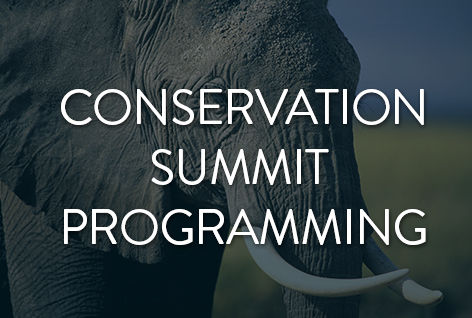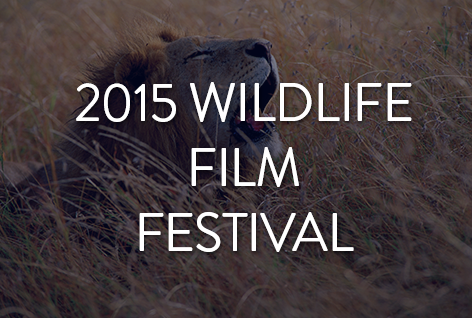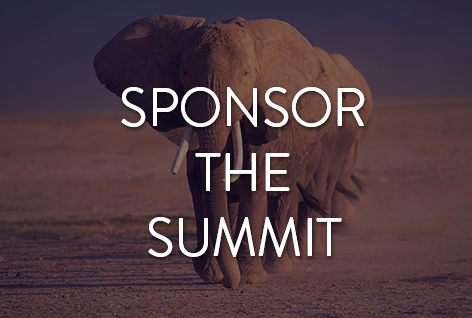Participating Organizations include:
Africa Wildlife Foundation, Amboseli Trust for Elephants, American Association for the Advancement of Science, Big Life Foundation, Carl Safina Foundation, Center for Conservation Biology/Univ. of Washington, Conservation International, Conservation Kenya, Elephant Action League/WILDLEAKS, Elephant Listening Project, Elephant Voices, Environmental Investigation Agency, Frankfurt Zoological Society, The Gorongosa Foundation, Great Plains Conservation, Humane Society, International Anti-Poaching Fund, International Fund for Animal Welfare, Isoforensics, Ivory for Elephants, Lewa Wildlife Conservancy, Mali Elephant Project, Mara Elephant Project, National Geographic, Terra Mater Factual Studios, The Nature Conservancy, Pan African Wildlife Conservation Network, PBS, Save the Elephants, United Nations/CITES, US Fish & Wildlife Service, Vulcan Foundation, Vulcan Productions, WildAid, Wildlife Conservation Society, Wildlife Conservation Network, Wildlife Direct, Wildlife Works, Working Dogs for Conservation, World Wildlife Fund and others.
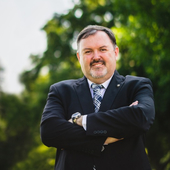
Crawford Allan, Senior Director, Wildlife Conservation
World Wildlife Fund (WWF)
Crawford Allan is an international expert on wildlife trafficking and trade, with 24 years’ experience in wildlife conservation, policy and regulation. Most recently he was selected for the Advisory Council to the U.S. Presidential Task Force on Wildlife Trafficking.He has led TRAFFIC’s black market investigations internationally in dozens of countries and has directly supported strong enforcement action, including some of the largest seizures, major arrests and prosecutions internationally. He is the TRAFFIC leader globally of the joint WWF and TRAFFIC Wildlife Crime Initiative. He was the leader of phase 1 of WWF’s Wildlife Crime Technology project – the recipient of a $5 million Google Global Impact Award Grant.
The author of several publications and numerous papers on wildlife trafficking, species conservation, improving wildlife law enforcement and building strong enforcement partnerships, Crawford guides the development of innovative approaches to wildlife trade challenges. He helped to pioneer regional wildlife enforcement networks, including the ASEAN WEN and the Central American WEN.
World Wildlife Fund (WWF)
Crawford Allan is an international expert on wildlife trafficking and trade, with 24 years’ experience in wildlife conservation, policy and regulation. Most recently he was selected for the Advisory Council to the U.S. Presidential Task Force on Wildlife Trafficking.He has led TRAFFIC’s black market investigations internationally in dozens of countries and has directly supported strong enforcement action, including some of the largest seizures, major arrests and prosecutions internationally. He is the TRAFFIC leader globally of the joint WWF and TRAFFIC Wildlife Crime Initiative. He was the leader of phase 1 of WWF’s Wildlife Crime Technology project – the recipient of a $5 million Google Global Impact Award Grant.
The author of several publications and numerous papers on wildlife trafficking, species conservation, improving wildlife law enforcement and building strong enforcement partnerships, Crawford guides the development of innovative approaches to wildlife trade challenges. He helped to pioneer regional wildlife enforcement networks, including the ASEAN WEN and the Central American WEN.
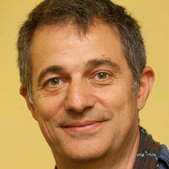
David Allen, Producer
Passion Pictures
David Allen has produced and directed landmark natural history television programs for over twenty years. A partner in Passion Pictures, David works up a broad slate of specialist factual and feature documentaries, as well as continuing his innovative output of landmark natural history films. His second film for National Geographic Television Flying Devils won him an Emmy for best cinematography, two years later his Discovery/C4 series Bugworld won another Emmy for best director. His ITV series Deep Jungle broke adventure wildlife on UK’s commercial television, and the 90min Ocean Oddyssey merged natural history and computer graphics to realize the depths of the ocean for BBC1. His long-standing relationship with PBS recently culminated in the ambitious conservation series Earth: A New Wild which utilized big budget techniques to present the wildlife of planet earth, but turning the camera round to show the humans in the picture. Working with the BBC Natural world and PBS Nature he pushed at the genre of storytelling with people and wildlife with shows like Gorilla King, Elephants of Timbuktu, andLost Crocs of the Pharoahs. Most recently for these strands his film My Life as a Turkey was described by The Times as “probably the best documentary of the year” and won David his fourth Emmy, a Grierson nomination, his fifth Wildscreen Panda, and the Teton writing award here at Jackson Hole. From his base at Passion Pictures, David also runs a Green Media Lab that partners with companies like Swarorski, the Nature Conservancy and Alibaba to utilize Passion’s story skills and filming expertise to find ways to communicate critical stories about natural history and conservation to a wider audience.
Passion Pictures
David Allen has produced and directed landmark natural history television programs for over twenty years. A partner in Passion Pictures, David works up a broad slate of specialist factual and feature documentaries, as well as continuing his innovative output of landmark natural history films. His second film for National Geographic Television Flying Devils won him an Emmy for best cinematography, two years later his Discovery/C4 series Bugworld won another Emmy for best director. His ITV series Deep Jungle broke adventure wildlife on UK’s commercial television, and the 90min Ocean Oddyssey merged natural history and computer graphics to realize the depths of the ocean for BBC1. His long-standing relationship with PBS recently culminated in the ambitious conservation series Earth: A New Wild which utilized big budget techniques to present the wildlife of planet earth, but turning the camera round to show the humans in the picture. Working with the BBC Natural world and PBS Nature he pushed at the genre of storytelling with people and wildlife with shows like Gorilla King, Elephants of Timbuktu, andLost Crocs of the Pharoahs. Most recently for these strands his film My Life as a Turkey was described by The Times as “probably the best documentary of the year” and won David his fourth Emmy, a Grierson nomination, his fifth Wildscreen Panda, and the Teton writing award here at Jackson Hole. From his base at Passion Pictures, David also runs a Green Media Lab that partners with companies like Swarorski, the Nature Conservancy and Alibaba to utilize Passion’s story skills and filming expertise to find ways to communicate critical stories about natural history and conservation to a wider audience.
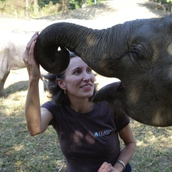
Beth Allgood, Strategic Development
International Fund for Animal Welfare (IFAW)
Beth assures the strategic development and implementation of US projects and campaigns with
special emphasis on the U.S. role in ivory trade, wildlife trafficking, and wildlife security issues.
She is IFAW’s liaison to the Clinton Global Initiative’s “Elephant Action Network”. Beth also
leads IFAW’s innovative work to look beyond GDP for alternatives that better promote
happiness and wellbeing for people and animals.
International Fund for Animal Welfare (IFAW)
Beth assures the strategic development and implementation of US projects and campaigns with
special emphasis on the U.S. role in ivory trade, wildlife trafficking, and wildlife security issues.
She is IFAW’s liaison to the Clinton Global Initiative’s “Elephant Action Network”. Beth also
leads IFAW’s innovative work to look beyond GDP for alternatives that better promote
happiness and wellbeing for people and animals.
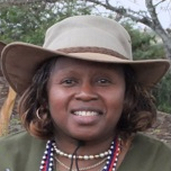
Patricia Awori
Pan-African Wildlife Conservation Network
Born in Nairobi and educated first at a Catholic Mission school and later at Lock Haven University in the United States, Awori holds a B.A. degree in International Relations, with a minor in Behavioral Science. She continued her studies in Biodiversity and co-authored a published paper on Biodiversity. Awori is involved in community wildlife conservation programs, policy development, wildlife conservation, advocacy and conservation of wild species. She actively contributes to Kenyan legislations including The Wildlife Bill and has participated in campaigns such as Hands Off Our Elephants and Jim Justus Nyamu’s Walk for the Elephants. Awori is a consultant for IFAW and serves as advisor to a variety of organizations and senior government officials. Currently, Awori serves on the Board of Amboseli Trust for Elephants, Massai Wilderness Conservation Trust, and Tsavo Trust and has also spoken in a wide variety of conservation and environmental forums, including the Houston Museum of Natural Sciences. As Director of Pan-African Wildlife Conservation Network, Awori has worked to bring together 26 of the 37 African Elephant Range States under the umbrella of the African Elephant Coalition. She has attended international conferences including the Convention on International Trade of Endangered Species (CITES) and the Convention on Biological Diversity (CBD). Pat is a member of the East African Wildlife Society, Co-Chair of the Kenya Elephant Forum, an influential advocacy group in the campaign for preservation of elephants. Most recently she is a founding member of the new Conservation Alliance of Kenya that represents the future of advocacy between NGO’s, Government and the Head of State.
Pan-African Wildlife Conservation Network
Born in Nairobi and educated first at a Catholic Mission school and later at Lock Haven University in the United States, Awori holds a B.A. degree in International Relations, with a minor in Behavioral Science. She continued her studies in Biodiversity and co-authored a published paper on Biodiversity. Awori is involved in community wildlife conservation programs, policy development, wildlife conservation, advocacy and conservation of wild species. She actively contributes to Kenyan legislations including The Wildlife Bill and has participated in campaigns such as Hands Off Our Elephants and Jim Justus Nyamu’s Walk for the Elephants. Awori is a consultant for IFAW and serves as advisor to a variety of organizations and senior government officials. Currently, Awori serves on the Board of Amboseli Trust for Elephants, Massai Wilderness Conservation Trust, and Tsavo Trust and has also spoken in a wide variety of conservation and environmental forums, including the Houston Museum of Natural Sciences. As Director of Pan-African Wildlife Conservation Network, Awori has worked to bring together 26 of the 37 African Elephant Range States under the umbrella of the African Elephant Coalition. She has attended international conferences including the Convention on International Trade of Endangered Species (CITES) and the Convention on Biological Diversity (CBD). Pat is a member of the East African Wildlife Society, Co-Chair of the Kenya Elephant Forum, an influential advocacy group in the campaign for preservation of elephants. Most recently she is a founding member of the new Conservation Alliance of Kenya that represents the future of advocacy between NGO’s, Government and the Head of State.
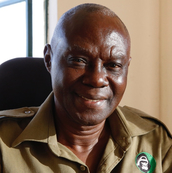
Gerald Bigurube, Regional Coordinator
Frankfurt Zoological Society
Gerald Bigurube is the Regional Co-ordinator for the Frankfurt Zoological Society and manages projects in the Selous Game Reserve, Serengeti National Park and Mahale Mountains National Park. Gerald began his career in the Selous (at 50,000 square kilometers one of the largest protected areas in Africa) and rose to the position of Chief Warden at the peak of the first elephant and rhino poaching wave of the 80s and 90s. He then spent 15 years at Tanzania National Parks (TANAPA) where he became Director General in 2004, overseeing the management of Tanzania’s network of 15 National Parks until his retirement in 2009. Gerald is also a skilled pilot with experience in Systemic Reconnaissance Flights, wildlife counts, anti-poaching flights, radio tracking and aerial filmmaking. He received his undergraduate degree in Zoology at the University of Alberta, Canada.
Frankfurt Zoological Society
Gerald Bigurube is the Regional Co-ordinator for the Frankfurt Zoological Society and manages projects in the Selous Game Reserve, Serengeti National Park and Mahale Mountains National Park. Gerald began his career in the Selous (at 50,000 square kilometers one of the largest protected areas in Africa) and rose to the position of Chief Warden at the peak of the first elephant and rhino poaching wave of the 80s and 90s. He then spent 15 years at Tanzania National Parks (TANAPA) where he became Director General in 2004, overseeing the management of Tanzania’s network of 15 National Parks until his retirement in 2009. Gerald is also a skilled pilot with experience in Systemic Reconnaissance Flights, wildlife counts, anti-poaching flights, radio tracking and aerial filmmaking. He received his undergraduate degree in Zoology at the University of Alberta, Canada.
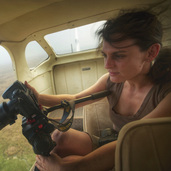
Kate Brooks
Kate Brooks is an internationally recognized photojournalist who has chronicled conflict and human rights issues for nearly two decades. Her photographs are regularly published in magazines such as TIME, Newsweek, The New Yorker and Smithsonian, and exhibited internationally in museums and galleries. In 2012 Kate was selected for the prestigious Knight-Wallace Fellowship at the University of Michigan. There she began researching wildlife trafficking and the pan-African poaching epidemic before embarking on directing the documentary film The Last Animals, which is currently in the pipeline. Kate’s drive and passion for this project comes from the fundamental belief that time is running out and that we are at a critical moment in natural history.
Kate Brooks is an internationally recognized photojournalist who has chronicled conflict and human rights issues for nearly two decades. Her photographs are regularly published in magazines such as TIME, Newsweek, The New Yorker and Smithsonian, and exhibited internationally in museums and galleries. In 2012 Kate was selected for the prestigious Knight-Wallace Fellowship at the University of Michigan. There she began researching wildlife trafficking and the pan-African poaching epidemic before embarking on directing the documentary film The Last Animals, which is currently in the pipeline. Kate’s drive and passion for this project comes from the fundamental belief that time is running out and that we are at a critical moment in natural history.
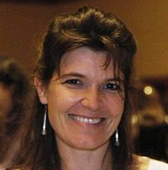
Dr. Susan Canney, Project Leader, WILD Conservation Advisor
Mali Elephant Project, WILD & The International Conservation Fund of Canada
Dr. Susan Canney has worked on a variety of nature conservation projects in Africa, Asia and Europe, including living for several years in Niger and Tanzania. Dr. Canney has also worked as a research officer at the Green College Centre for Environmental Policy & Understanding (UK). In addition to working with WILD, she also collaborates with the Wildlife Conservation Research Unit (WildCRU) based in Oxford. She has MAs in Natural Sciences, Landscape Design, and Environmental Policy, and a Doctorate for understanding changing human land use and its impact on a protected area in Tanzania. Her work involves using systems perspectives and collaborative approaches to understand the human-nature relationship and find sustainable solutions to conservation problems. Dr Canney is also the Secretary and a Co-founder of the Earth Systems Science Special Interest Group of the Geological Society of London, and of the Gaia Network. She teaches at University of Oxford and for the Green Economics Institute and is part of Forum for the Future’s ‘Reconnections’ team for business leaders. She is co-author of “Conservation” (Cambridge University Press, 2013).
Mali Elephant Project, WILD & The International Conservation Fund of Canada
Dr. Susan Canney has worked on a variety of nature conservation projects in Africa, Asia and Europe, including living for several years in Niger and Tanzania. Dr. Canney has also worked as a research officer at the Green College Centre for Environmental Policy & Understanding (UK). In addition to working with WILD, she also collaborates with the Wildlife Conservation Research Unit (WildCRU) based in Oxford. She has MAs in Natural Sciences, Landscape Design, and Environmental Policy, and a Doctorate for understanding changing human land use and its impact on a protected area in Tanzania. Her work involves using systems perspectives and collaborative approaches to understand the human-nature relationship and find sustainable solutions to conservation problems. Dr Canney is also the Secretary and a Co-founder of the Earth Systems Science Special Interest Group of the Geological Society of London, and of the Gaia Network. She teaches at University of Oxford and for the Green Economics Institute and is part of Forum for the Future’s ‘Reconnections’ team for business leaders. She is co-author of “Conservation” (Cambridge University Press, 2013).
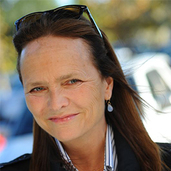
Katie Carpenter, Producer
Everwild Media
Katie Carpenter is an award-winning documentary filmmaker specializing in science and environmental subjects, from endangered species to evolution to climate change. Her films have been shot around the world in partnership with National Geographic TV, Discovery Channel, MSNBC, Animal Planet, Sundance, TBS and PBS. As a partner in Everwild Media, Carpenter most recently produced Ivory Warlords for National Geographic Explorer, Bones of Turkana and Battle for the Elephants for National Geographic TV, as well as Hundred Heartbeats for MSNBC and the Emmy-nominated feature-length documentary A Year On Earth for Discovery and Animal Planet. Among her other credits are PBS’s Race to Save the Planet, TBS’s Wildlife Adventures, environmental short films and eco-music videos for Jimmy Buffett for Planet Green. She was Vice President of Film/TV for National Audubon Society Productions, where she supervised environmental series for Animal Planet, TBS, Disney Channel and the BBC, as well as advocacy shorts and educational videos. She is Co-Chair of the Producer Guild of America’s Green Committee, a member of NRDC’s Global Leadership Council, a Vice Chair of Audubon’s Women in Conservation Committee and a member of the Writers Guild of America.
Everwild Media
Katie Carpenter is an award-winning documentary filmmaker specializing in science and environmental subjects, from endangered species to evolution to climate change. Her films have been shot around the world in partnership with National Geographic TV, Discovery Channel, MSNBC, Animal Planet, Sundance, TBS and PBS. As a partner in Everwild Media, Carpenter most recently produced Ivory Warlords for National Geographic Explorer, Bones of Turkana and Battle for the Elephants for National Geographic TV, as well as Hundred Heartbeats for MSNBC and the Emmy-nominated feature-length documentary A Year On Earth for Discovery and Animal Planet. Among her other credits are PBS’s Race to Save the Planet, TBS’s Wildlife Adventures, environmental short films and eco-music videos for Jimmy Buffett for Planet Green. She was Vice President of Film/TV for National Audubon Society Productions, where she supervised environmental series for Animal Planet, TBS, Disney Channel and the BBC, as well as advocacy shorts and educational videos. She is Co-Chair of the Producer Guild of America’s Green Committee, a member of NRDC’s Global Leadership Council, a Vice Chair of Audubon’s Women in Conservation Committee and a member of the Writers Guild of America.
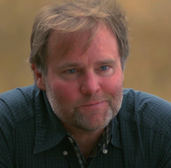
Greg Carr, President
Gorongosa Restoration Foundation
Greg Carr received a Masters in public policy from Harvard in 1986. In 1999, he co-founded the Carr Center for Human Rights Policy at Harvard University. Carr has been active in philanthropic activities in his home state of Idaho. Joining family and friends, he co-founded the Museum of Idaho in 2000, a cultural and natural history museum. In January of 2008, Carr signed a 20-year agreement with the Government of Mozambique to restore and co-manage the country's flagship national park, "Gorongosa". The Gorongosa management team has reintroduced wildlife to the ecosystem, restored trees in the Mt. Gorongosa rainforest, and has created an international Restoration Ecology Science Research Center, named the "EO Wilson Laboratory". Additionally, the restoration team re-established eco-tourism in the Park creating local employment and Park income. The Park Community Relations Department provides health, education, and agricultural assistance to the local communities living near its borders. Carr is a member of the Board of Directors of the EO Wilson Biodiversity Foundation.
Gorongosa Restoration Foundation
Greg Carr received a Masters in public policy from Harvard in 1986. In 1999, he co-founded the Carr Center for Human Rights Policy at Harvard University. Carr has been active in philanthropic activities in his home state of Idaho. Joining family and friends, he co-founded the Museum of Idaho in 2000, a cultural and natural history museum. In January of 2008, Carr signed a 20-year agreement with the Government of Mozambique to restore and co-manage the country's flagship national park, "Gorongosa". The Gorongosa management team has reintroduced wildlife to the ecosystem, restored trees in the Mt. Gorongosa rainforest, and has created an international Restoration Ecology Science Research Center, named the "EO Wilson Laboratory". Additionally, the restoration team re-established eco-tourism in the Park creating local employment and Park income. The Park Community Relations Department provides health, education, and agricultural assistance to the local communities living near its borders. Carr is a member of the Board of Directors of the EO Wilson Biodiversity Foundation.

Natalie Cash, Executive Producer
Wildlife Conservation Society (WCS)
Cash is the Executive Producer in charge of video production at WCS, an international conservation organization with more than 3,000 field staff in 65 countries. WCS also operates the largest system of urban wildlife parks in the world – Bronx Zoo, Central Park Zoo, Prospect Park Zoo and Queens Zoo and NY Aquarium on Coney Island – educating four million visitors each year about the importance of conservation. With two decades of experience in the industry, Cash produces short-form programming about WCS projects and stories for multiple platforms. Her films have won awards at the International Wildlife Film Festival and NY Wild Film Festival and selected as finalists at Wildscreen and the Jackson Hole Wildlife Film Festival. Prior to joining WCS, she was a series producer and writer at the Emmy Award-winning documentary production company Pangolin Pictures.
Wildlife Conservation Society (WCS)
Cash is the Executive Producer in charge of video production at WCS, an international conservation organization with more than 3,000 field staff in 65 countries. WCS also operates the largest system of urban wildlife parks in the world – Bronx Zoo, Central Park Zoo, Prospect Park Zoo and Queens Zoo and NY Aquarium on Coney Island – educating four million visitors each year about the importance of conservation. With two decades of experience in the industry, Cash produces short-form programming about WCS projects and stories for multiple platforms. Her films have won awards at the International Wildlife Film Festival and NY Wild Film Festival and selected as finalists at Wildscreen and the Jackson Hole Wildlife Film Festival. Prior to joining WCS, she was a series producer and writer at the Emmy Award-winning documentary production company Pangolin Pictures.
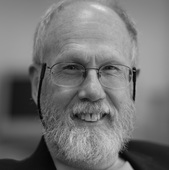
Thure Cerling,
IsoForensics and University of Utah
Thure Cerling is a geologist and biologist who uses isotopes to understand Earth surface processes. His work relates to conservation and the forensic use of isotopes as tracers of diet, migration, and age. These isotope studies include elephant movement in Africa, geo-location of rhinos, age-of-death using "bomb" carbon, unidentified decedent investigations, salmon migration, and behavioral studies of marine mammals. He also works on early human origins and environmental geochemistry. He is Distinguished Professor of Geology and Geophysics, and Distinguished Professor of Biology, at the University of Utah. He is one of the co-founders of IsoForensics, a private research and analytical services facility located in Salt Lake City that focuses on applications of stable isotope analyses to forensics problems faced by law enforcement. He is a member of the US National Academy of Sciences.
IsoForensics and University of Utah
Thure Cerling is a geologist and biologist who uses isotopes to understand Earth surface processes. His work relates to conservation and the forensic use of isotopes as tracers of diet, migration, and age. These isotope studies include elephant movement in Africa, geo-location of rhinos, age-of-death using "bomb" carbon, unidentified decedent investigations, salmon migration, and behavioral studies of marine mammals. He also works on early human origins and environmental geochemistry. He is Distinguished Professor of Geology and Geophysics, and Distinguished Professor of Biology, at the University of Utah. He is one of the co-founders of IsoForensics, a private research and analytical services facility located in Salt Lake City that focuses on applications of stable isotope analyses to forensics problems faced by law enforcement. He is a member of the US National Academy of Sciences.
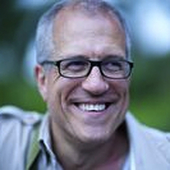
Bryan Christy, Chief Correspondent & Founder, Special Investigations Unit
National Geographic Magazine
Bryan Christy is an author and journalist. He is chief correspondent and founder of the Special Investigations Unit at National Geographic magazine and is a National Geographic Society Fellow. In 2014 he was named National Geographic Explorer of the Year, and his work on international wildlife trafficking has been cited as one of ten way NAtional Geographic has changed the world. Christy is author of The Lizard King: the true crimes and passionals of the world's greatest reptile smuggles (TWELVE). His non-fiction has appeared in National Geographic, Foreign Policy, Playboy and law journals. His 2012 international ivory investigation was made into the award-winning National Geographic-PBS documentary Battle for the Elephants. His 2015 investigation is the subject of the 2015 Explored series premiere, Warlords of Ivory aired on the National Geographic Channel.
National Geographic Magazine
Bryan Christy is an author and journalist. He is chief correspondent and founder of the Special Investigations Unit at National Geographic magazine and is a National Geographic Society Fellow. In 2014 he was named National Geographic Explorer of the Year, and his work on international wildlife trafficking has been cited as one of ten way NAtional Geographic has changed the world. Christy is author of The Lizard King: the true crimes and passionals of the world's greatest reptile smuggles (TWELVE). His non-fiction has appeared in National Geographic, Foreign Policy, Playboy and law journals. His 2012 international ivory investigation was made into the award-winning National Geographic-PBS documentary Battle for the Elephants. His 2015 investigation is the subject of the 2015 Explored series premiere, Warlords of Ivory aired on the National Geographic Channel.
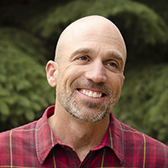
Peter Coppolillo, PhD, Executive Director
Working Dogs for Conservation
Pete received a bachelor’s degree with honors in Biology and Environmental Conservation from the University of Colorado and a Ph.D. in Ecology from the University of California, Davis. Pete worked with the Wildlife Conservation Society for 10 years, first at their New York Headquarters and then as part of the Africa and North America Programs. Pete has studied Ferruginous Hawks in North America, avian community ecology in Kenya, and large herbivore ecology and herding systems in Tanzania. He has helped plan and carry out conservation strategies in Bolivia, Ecuador, Argentina, Congo, Cambodia, Tanzania, and the United States. His publications appear in Conservation Biology, Biological Conservation, PLOS (Public Library of Science), Human Ecology, Landscape and Urban Planning, Landscape Ecology, and Science, and he is co-author of the book Conservation: Linking Ecology, Economics and Culture (2005 Princeton Univ. Press).
Working Dogs for Conservation
Pete received a bachelor’s degree with honors in Biology and Environmental Conservation from the University of Colorado and a Ph.D. in Ecology from the University of California, Davis. Pete worked with the Wildlife Conservation Society for 10 years, first at their New York Headquarters and then as part of the Africa and North America Programs. Pete has studied Ferruginous Hawks in North America, avian community ecology in Kenya, and large herbivore ecology and herding systems in Tanzania. He has helped plan and carry out conservation strategies in Bolivia, Ecuador, Argentina, Congo, Cambodia, Tanzania, and the United States. His publications appear in Conservation Biology, Biological Conservation, PLOS (Public Library of Science), Human Ecology, Landscape and Urban Planning, Landscape Ecology, and Science, and he is co-author of the book Conservation: Linking Ecology, Economics and Culture (2005 Princeton Univ. Press).
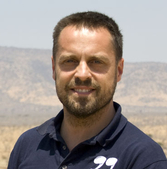
Andrea Crosta, Executive Director
Elephant Action League/WILDLEAKS
Andrea is the co-founder of Elephant Action League and a founding and supervisory board member of the recently established Wildlife Justice Commission. For over 15 years he has been working also as an international consultant for high-end security services & technologies. He holds an MS in Natural Sciences, an MA in Business, and a BSc in Psychology.
Elephant Action League/WILDLEAKS
Andrea is the co-founder of Elephant Action League and a founding and supervisory board member of the recently established Wildlife Justice Commission. For over 15 years he has been working also as an international consultant for high-end security services & technologies. He holds an MS in Natural Sciences, an MA in Business, and a BSc in Psychology.
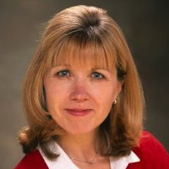
Maryanne Culpepper, Writer, Filmmaker
Grafitti Works, Inc.
Maryanne Culpepper is an award-winning writer and filmmaker with extensive experience in developing, writing and producing high-profile documentaries and nonfiction series. She is the former President of National Geographic Television, where she oversaw development and production of 100+ hours of factual programming annually. She specializes in writing for broadcast, digital and museum platforms through her company Graffiti Works. Current projects include films based in Mozambique and the Baltic Sea, and an internationally touring exhibition for science museums. She is an Adjunct Professor at George Washington University’s School of Media and Public Affairs teaching courses in writing and storytelling in film. She is also an instructor at the Maine Media Workshops.
Grafitti Works, Inc.
Maryanne Culpepper is an award-winning writer and filmmaker with extensive experience in developing, writing and producing high-profile documentaries and nonfiction series. She is the former President of National Geographic Television, where she oversaw development and production of 100+ hours of factual programming annually. She specializes in writing for broadcast, digital and museum platforms through her company Graffiti Works. Current projects include films based in Mozambique and the Baltic Sea, and an internationally touring exhibition for science museums. She is an Adjunct Professor at George Washington University’s School of Media and Public Affairs teaching courses in writing and storytelling in film. She is also an instructor at the Maine Media Workshops.
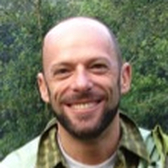
James Deutsch, Director of Wildlife Conservation
Vulcan Inc.
James Deutsch has just started at Vulcan Inc., Paul Allen’s organization, as Director of Wildlife Conservation, focusing especially on elephants, rhinos, sharks, rays, and wildlife trafficking. Originally from New York City, James studied philosophy (AB) at Harvard and anthropology (MPhil) and zoology (PhD) at Cambridge. He was a research fellow at Cambridge, lecturer in ecology at the University of East Anglia, and lecturer in behavioral ecology and conservation biology at Imperial College London before becoming the chief executive of Britain’s national fundraising charity for AIDS (Crusaid) for six years. In 2002 he returned to New York to head the Wildlife Conservation Society’s (WCS) Africa Program, and was appointed VP Conservation Strategy at WCS in 2014. James’ work in Africa has included field studies of Uganda kob antelope and Malawi cichlid fishes, school-teaching in Kenya, helping found and lead the Tropical Biology Association, and spending about one quarter time from 2002-2014 on management visits to WCS’s 12 African country programs (Nigeria, Cameroon, Gabon, Congo, DRC, Rwanda, Uganda, South Sudan, Tanzania, Zambia, Mozambique, and Madagascar). Under James’ leadership, WCS’s work in Africa was expanded and reorganized under country programs, growing in budget from $6 million in 2003 to $34 million in 2014. WCS helped to create and implement the Congo Basin Forest Partnership and associated Central Africa Regional Program for the Environment of the US Government. James launched new country programs in Nigeria, South Sudan, and Mozambique. He helped WCS’s large-scale alternative livelihood program in Zambia, COMACO, to grow and mature into an independent Zambian non-profit company. Under his leadership WCS helped create Gabon’s system of national parks, discovered a population of 125,000 western lowland gorillas in Congo, and re-discovered the great ungulate migrations of South Sudan. During 2012-2014, James’ focus has been on strengthening WCS’s role and capacity in protected area management and coordinating WCS’s efforts to end Africa’s elephant poaching and ivory trafficking crisis.
Vulcan Inc.
James Deutsch has just started at Vulcan Inc., Paul Allen’s organization, as Director of Wildlife Conservation, focusing especially on elephants, rhinos, sharks, rays, and wildlife trafficking. Originally from New York City, James studied philosophy (AB) at Harvard and anthropology (MPhil) and zoology (PhD) at Cambridge. He was a research fellow at Cambridge, lecturer in ecology at the University of East Anglia, and lecturer in behavioral ecology and conservation biology at Imperial College London before becoming the chief executive of Britain’s national fundraising charity for AIDS (Crusaid) for six years. In 2002 he returned to New York to head the Wildlife Conservation Society’s (WCS) Africa Program, and was appointed VP Conservation Strategy at WCS in 2014. James’ work in Africa has included field studies of Uganda kob antelope and Malawi cichlid fishes, school-teaching in Kenya, helping found and lead the Tropical Biology Association, and spending about one quarter time from 2002-2014 on management visits to WCS’s 12 African country programs (Nigeria, Cameroon, Gabon, Congo, DRC, Rwanda, Uganda, South Sudan, Tanzania, Zambia, Mozambique, and Madagascar). Under James’ leadership, WCS’s work in Africa was expanded and reorganized under country programs, growing in budget from $6 million in 2003 to $34 million in 2014. WCS helped to create and implement the Congo Basin Forest Partnership and associated Central Africa Regional Program for the Environment of the US Government. James launched new country programs in Nigeria, South Sudan, and Mozambique. He helped WCS’s large-scale alternative livelihood program in Zambia, COMACO, to grow and mature into an independent Zambian non-profit company. Under his leadership WCS helped create Gabon’s system of national parks, discovered a population of 125,000 western lowland gorillas in Congo, and re-discovered the great ungulate migrations of South Sudan. During 2012-2014, James’ focus has been on strengthening WCS’s role and capacity in protected area management and coordinating WCS’s efforts to end Africa’s elephant poaching and ivory trafficking crisis.
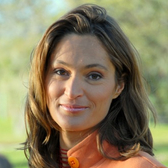
Saba Douglas-Hamilton, Director of Special Projects
Save the Elephants (STE)
Saba Douglas-Hamilton is a conservationist, filmmaker and TV host. She served as as Trustee of Save the Elephants for a decade and is now Chair of the Advisory Board. With a first class degree in Social Anthropology (MA) from the University of St. Andrews, Scotland, she first worked with the Save the Rhino Trust in Namibia. In 1997 she joined Save the Elephants as Head of Operations, helping establish the organization's research headquarters in Samburu National Reserve. Saba is a sought-after communicator on conservation, acclaimed for her ability to inspire audiences around the world to engage with the wild world. In 2000 she began as a wildlife filmmaker with the BBC and has since hosted nine award-winning TV series and twenty-four documentaries including producing two films for Animal Planet, Heart of a Lioness and Rhino Nights. After taking a sabbatical to raise her family, she has recently returned to filmmaking with a new 12 part BBC series, This Wild Life.
Save the Elephants (STE)
Saba Douglas-Hamilton is a conservationist, filmmaker and TV host. She served as as Trustee of Save the Elephants for a decade and is now Chair of the Advisory Board. With a first class degree in Social Anthropology (MA) from the University of St. Andrews, Scotland, she first worked with the Save the Rhino Trust in Namibia. In 1997 she joined Save the Elephants as Head of Operations, helping establish the organization's research headquarters in Samburu National Reserve. Saba is a sought-after communicator on conservation, acclaimed for her ability to inspire audiences around the world to engage with the wild world. In 2000 she began as a wildlife filmmaker with the BBC and has since hosted nine award-winning TV series and twenty-four documentaries including producing two films for Animal Planet, Heart of a Lioness and Rhino Nights. After taking a sabbatical to raise her family, she has recently returned to filmmaking with a new 12 part BBC series, This Wild Life.
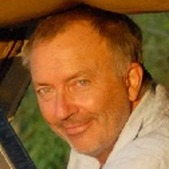
Mark Deeble, Director, Cinematographer
DeebleStone Productions
DeebleStone Productions
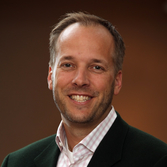
Jeffrey Flocken, North American Regional Director
International Fund for Animal Welfare (IFAW)
Jeffrey leads in the US and Canada advocating on behalf of animals. Flocken is also
the founder and board co-chair of the Emerging Wildlife Conservation Leaders initiative and is
the coauthor of the book Wildlife Heroes.
International Fund for Animal Welfare (IFAW)
Jeffrey leads in the US and Canada advocating on behalf of animals. Flocken is also
the founder and board co-chair of the Emerging Wildlife Conservation Leaders initiative and is
the coauthor of the book Wildlife Heroes.
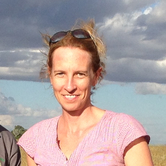
Dr. Michelle Gadd, Program Officer, African Elephant and African Rhino Programs
Division of International Conservation, US Fish and Wildlife Service
Michelle has headed up the African elephant and the African rhino programs for the US Fish & Wildlife Service since 2005. Prior to joining USFWS, she spent a decade working in the field in Africa: catching frogs in Kenya and DRC; studying elephants in Kenya, South Africa and Botswana; and learning about natural history from local residents. She did her Master's fieldwork in the Kruger ecosystem and her Ph.D. fieldwork in Botswana and Kenya. Her work focused on ecological compatibility of elephants and cattle in arid areas, on the economic and sociological factors that cause conflict between wildlife and people, and the role of financial benefits on attitudes towards wildlife. More recently, she has worked to bring attention to the impact of fences and roads on wildlife.
Division of International Conservation, US Fish and Wildlife Service
Michelle has headed up the African elephant and the African rhino programs for the US Fish & Wildlife Service since 2005. Prior to joining USFWS, she spent a decade working in the field in Africa: catching frogs in Kenya and DRC; studying elephants in Kenya, South Africa and Botswana; and learning about natural history from local residents. She did her Master's fieldwork in the Kruger ecosystem and her Ph.D. fieldwork in Botswana and Kenya. Her work focused on ecological compatibility of elephants and cattle in arid areas, on the economic and sociological factors that cause conflict between wildlife and people, and the role of financial benefits on attitudes towards wildlife. More recently, she has worked to bring attention to the impact of fences and roads on wildlife.

Bill Gardner, VP Programming & Development
PBS
Bill Gardner oversees content strategy, development and production for the PBS Primetime schedule in the genres of science, natural history, culture, current events and history as well as a portion of the PBS drama lineup. During his time at PBS projects he has shepherded have won two Peabody Awards and been nominated for multiple Emmys. Recent projects include The Big Blue (BBC) andGorongosa Park: Rebirth of Paradise (Off the Fence Productions and National Geographic), Your Inner Fish with Neil Shubin (Windfall Films and Tangled Bank Studios), Earth A New Wild (Passion Planet and NGT), How We Got to Now with Steven Johnson (Nutopia). Before joining PBS he was executive producer at Discovery Studios, where he oversaw and developed national productions in the reality, CGI and science genres for multiple networks. Prior to Discovery Bill spent over a decade in the independent production world, working as director, producer, writer and show runner on shows including Digging for the Truth on the History Channel, Treasure Quest on Discovery, CNN Presents and several episodes of Explorer for National Geographic Television. He has produced in over 30 countries, including spending 2 months in Iraq embedded with US Special Forces investigating the looting of the Baghdad museum. During this time he was also the first Westerner allowed to film inside the holy Shi’i Shrines of Hussein and Abbas in Karbala.
PBS
Bill Gardner oversees content strategy, development and production for the PBS Primetime schedule in the genres of science, natural history, culture, current events and history as well as a portion of the PBS drama lineup. During his time at PBS projects he has shepherded have won two Peabody Awards and been nominated for multiple Emmys. Recent projects include The Big Blue (BBC) andGorongosa Park: Rebirth of Paradise (Off the Fence Productions and National Geographic), Your Inner Fish with Neil Shubin (Windfall Films and Tangled Bank Studios), Earth A New Wild (Passion Planet and NGT), How We Got to Now with Steven Johnson (Nutopia). Before joining PBS he was executive producer at Discovery Studios, where he oversaw and developed national productions in the reality, CGI and science genres for multiple networks. Prior to Discovery Bill spent over a decade in the independent production world, working as director, producer, writer and show runner on shows including Digging for the Truth on the History Channel, Treasure Quest on Discovery, CNN Presents and several episodes of Explorer for National Geographic Television. He has produced in over 30 countries, including spending 2 months in Iraq embedded with US Special Forces investigating the looting of the Baghdad museum. During this time he was also the first Westerner allowed to film inside the holy Shi’i Shrines of Hussein and Abbas in Karbala.

Grace Ge Gabriel, Asia Regional Director
International Fund for Animal Welfare (IFAW)
As IFAW Regional Director, Grace leads strategic development and implementation of conservation and animal welfare campaigns in Asia. IFAW successfully conducted wildlife trade reduction campaigns in China generating enhanced government policies and enforcement actions, marketplace trade bans and reduced consumer demand for parts and products from endangered species.
International Fund for Animal Welfare (IFAW)
As IFAW Regional Director, Grace leads strategic development and implementation of conservation and animal welfare campaigns in Asia. IFAW successfully conducted wildlife trade reduction campaigns in China generating enhanced government policies and enforcement actions, marketplace trade bans and reduced consumer demand for parts and products from endangered species.
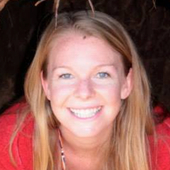
Liz Gibbs, Co-founder, Director of Impact
DIVA Networks, Inc.
Liz is the Director of Impact at DIVA Networks, Inc., a design-centric technology company based in Jackson Hole, WY with offices of engineers and creatives in Tokyo, Köln and San Francisco. As Director of Impact, Liz leads strategic partnerships, user acquisition and public relations ensuring each external relationship has purpose and passion at its center. Further, Liz is a co-creator of DIVA’s first product, Ravio. Ravio is the first technology built to enable visual literacy - expressing through images what is difficult with words. Built on an open media repository and participation-based image remix technology, Ravio empowers everyone to say something important and re-imagine the impact they can have on the world.
DIVA Networks, Inc.
Liz is the Director of Impact at DIVA Networks, Inc., a design-centric technology company based in Jackson Hole, WY with offices of engineers and creatives in Tokyo, Köln and San Francisco. As Director of Impact, Liz leads strategic partnerships, user acquisition and public relations ensuring each external relationship has purpose and passion at its center. Further, Liz is a co-creator of DIVA’s first product, Ravio. Ravio is the first technology built to enable visual literacy - expressing through images what is difficult with words. Built on an open media repository and participation-based image remix technology, Ravio empowers everyone to say something important and re-imagine the impact they can have on the world.
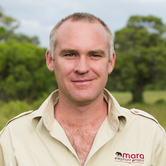
Marc Goss, Director of Programs
Mara Elephant Project
Marc Goss works in the Maasai Mara for the Mara Elephant Project. His field based knowledge and close relationships with partners puts him in first hand contact with the elephant poaching crisis which started in Kenya in 2012. Marc began his conservation career in 2004 in the Aberdare National Park where he started the Mountain Bongo Project with Michael Prettejohn. Marc then completed his undergraduate degree in the USA and during this time was mentored by conservationist Dr. Richard Leakey who was Marc’s field supervisor. The work Marc did with Dr. Leakey focused on Sustainable Forestry in the Taita area in Kenya. In 2007 Marc moved to the Maasai Mara full-time, where he managed the Ol Choro Oiroua Conservancy and Mara North Conservancy. In 2011 he co founded the Mara Elephant Project, which is on the forefront of elephant conservation for the Mara/Serengeti ecosystem. Marc is currently the CEO for MEP and spearheads the intelligence gathering, Rapid Response to poaching, Human Elephant Conflict response, and training collared elephants. In 2012 Marc developed the first concept for using drones to intervene with human elephant conflict. Since then the project has gained traction in Tanzania where rangers use the UAVs on a daily basis to move elephants out of crops.
Mara Elephant Project
Marc Goss works in the Maasai Mara for the Mara Elephant Project. His field based knowledge and close relationships with partners puts him in first hand contact with the elephant poaching crisis which started in Kenya in 2012. Marc began his conservation career in 2004 in the Aberdare National Park where he started the Mountain Bongo Project with Michael Prettejohn. Marc then completed his undergraduate degree in the USA and during this time was mentored by conservationist Dr. Richard Leakey who was Marc’s field supervisor. The work Marc did with Dr. Leakey focused on Sustainable Forestry in the Taita area in Kenya. In 2007 Marc moved to the Maasai Mara full-time, where he managed the Ol Choro Oiroua Conservancy and Mara North Conservancy. In 2011 he co founded the Mara Elephant Project, which is on the forefront of elephant conservation for the Mara/Serengeti ecosystem. Marc is currently the CEO for MEP and spearheads the intelligence gathering, Rapid Response to poaching, Human Elephant Conflict response, and training collared elephants. In 2012 Marc developed the first concept for using drones to intervene with human elephant conflict. Since then the project has gained traction in Tanzania where rangers use the UAVs on a daily basis to move elephants out of crops.
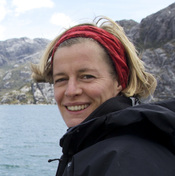
Susanna Handslip, Series Producer
BBC NHU
Susanna has worked for the BBC for twenty years. After ten years filming and directing a wide range of observational documentaries in London she moved to Bristol to work for the Natural History Unit. She has produced four of the NHU's 'Expeditions' series notably Lost Land of the Tiger and Land of the Lost Wolves with Discovery and The Dark: Nature’s Nighttime World with NDR. More recent series include Wild Burma, a co-production with the Smithsonian Channel, in which she went undercover to film the illegal wildlife trade. The series highlights the threats faced by tigers, Asiatic black bears, pangolins and Asian elephants as Myanmar opens its borders. She series produced This Wild Life, a new style of film-making for the NHU, which marries observational documentary techniques with blue chip filming to make stories even more accessible to viewers. Susanna is currently a Series Producer in NHU Development.
BBC NHU
Susanna has worked for the BBC for twenty years. After ten years filming and directing a wide range of observational documentaries in London she moved to Bristol to work for the Natural History Unit. She has produced four of the NHU's 'Expeditions' series notably Lost Land of the Tiger and Land of the Lost Wolves with Discovery and The Dark: Nature’s Nighttime World with NDR. More recent series include Wild Burma, a co-production with the Smithsonian Channel, in which she went undercover to film the illegal wildlife trade. The series highlights the threats faced by tigers, Asiatic black bears, pangolins and Asian elephants as Myanmar opens its borders. She series produced This Wild Life, a new style of film-making for the NHU, which marries observational documentary techniques with blue chip filming to make stories even more accessible to viewers. Susanna is currently a Series Producer in NHU Development.
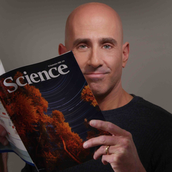
Bob Hirshon, Program Director for Technology and Learning
American Association for the Advancement of Science (AAAS)
Bob Hirshon's Active Explorer project lets educators create mobile expeditions – Quests –that kids join on their mobile devices. They then collect video, photos, audio and other data which they use to create ebooks, science posters, comic strips and presentations. Hirshon's other programs include the daily radio feature Science Update, the KC Empower project to provide informal science activities for kids with disabilities, education and public outreach for NASA's MESSENGER mission to planet Mercury, and the Kinetic City family of science programs, including after school clubs, books and online resources. Hirshon also oversees Science NetLinks, one of the top websites for science educators, and appears regularly on the Sirius/XM radio children's show Absolutely Mindy as Bob the Science Slob.
American Association for the Advancement of Science (AAAS)
Bob Hirshon's Active Explorer project lets educators create mobile expeditions – Quests –that kids join on their mobile devices. They then collect video, photos, audio and other data which they use to create ebooks, science posters, comic strips and presentations. Hirshon's other programs include the daily radio feature Science Update, the KC Empower project to provide informal science activities for kids with disabilities, education and public outreach for NASA's MESSENGER mission to planet Mercury, and the Kinetic City family of science programs, including after school clubs, books and online resources. Hirshon also oversees Science NetLinks, one of the top websites for science educators, and appears regularly on the Sirius/XM radio children's show Absolutely Mindy as Bob the Science Slob.

Iris Ho, Wildlife Program Manager
Humane Society International
Born and raised in Taipei, Taiwan, Iris Ho is the Wildlife Program Manager at Humane Society International (HSI), global affiliate of The Humane Society of the United States, the largest animal protection organization in the United States. She develops and leads initiatives that strengthen international protection for wildlife. She manages campaigns to curb the illegal wildlife trade and to eradicate shark finning through policy advocacy and public education. She attends meetings of the Regional Fisheries Management Organizations, the Convention on International Trade in Endangered Species and other governmental meetings on behalf of HSI. She has given briefings in U.S. Congress and testified at state legislatures to garner legislative and political support for stronger wildlife protection laws. She travels regularly to Asia and collaborates closely with HSI’s local partners, international organizations and national governments throughout the region. She coordinates U.S. state legislative efforts in cracking down on the trades in shark fins, elephant ivory and rhino horns. She has traveled to the Central African region to help local organizations and law enforcement agencies better understand the trends of illegal wildlife trade between Africa and Asia. She received her bachelor’s degree in Taiwan and master’s degree in international relations from the George Washington University in Washington, DC.
Humane Society International
Born and raised in Taipei, Taiwan, Iris Ho is the Wildlife Program Manager at Humane Society International (HSI), global affiliate of The Humane Society of the United States, the largest animal protection organization in the United States. She develops and leads initiatives that strengthen international protection for wildlife. She manages campaigns to curb the illegal wildlife trade and to eradicate shark finning through policy advocacy and public education. She attends meetings of the Regional Fisheries Management Organizations, the Convention on International Trade in Endangered Species and other governmental meetings on behalf of HSI. She has given briefings in U.S. Congress and testified at state legislatures to garner legislative and political support for stronger wildlife protection laws. She travels regularly to Asia and collaborates closely with HSI’s local partners, international organizations and national governments throughout the region. She coordinates U.S. state legislative efforts in cracking down on the trades in shark fins, elephant ivory and rhino horns. She has traveled to the Central African region to help local organizations and law enforcement agencies better understand the trends of illegal wildlife trade between Africa and Asia. She received her bachelor’s degree in Taiwan and master’s degree in international relations from the George Washington University in Washington, DC.
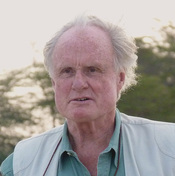
John Heminway
Wildlife Direct
John Heminway is a writer and filmmaker, with a focus on nature, science, history, and Africa. He is completing his sixth book. His filmmaking career, which includes work at ABC Sports, Anglia Television, the Discovery Channel, PBS and National Geographic Television, spans four decades and over 100 films. For four years he was the host and producer of the PBS series, “Travels.” His awards include two Emmys, two Peabodys and a DuPont Columbia Journalism award. Heminway’s 2013 broadcast, “Battle For The Elephants,” produced with Katie Carpenter and J.J. Kelley, was voted Best Conservation Film, at the Jackson Hole Wildlife Film Festival in 2013. In September 2014, it was awarded Science Media’s “Best Environmental and Conservation Sciences Program.” “Battle For The Elephants” has had enormous impact in a number of African countries, across the United States, in the U.S. Senate, Department of Fish & Wildlife and at the U.S. State Department. As sequel to “Battle For The Elephant,” Heminway is helping complete “Warlord of Ivory,” featuring investigative journalist, Bryan Christy. It premiered on 30 August 2015, re-launching National Geographic Channel’s Explorer Series, and linked to a special Magazine cover story. Heminway has served on board and advisory councils of many environmental causes, including the African Wildlife Foundation (where he was Board Chairman for nine years), Trout Unlimited, American Prairie Reserve, White Oak Conservation Center, Tusk, Elephant Family. In 2013, Dr. Richard Leakey appointed Heminway Chairman of WildlifeDirect. John Heminway lives with his wife and daughter in Montana with frequent trips to New York to manage and complete films.
Wildlife Direct
John Heminway is a writer and filmmaker, with a focus on nature, science, history, and Africa. He is completing his sixth book. His filmmaking career, which includes work at ABC Sports, Anglia Television, the Discovery Channel, PBS and National Geographic Television, spans four decades and over 100 films. For four years he was the host and producer of the PBS series, “Travels.” His awards include two Emmys, two Peabodys and a DuPont Columbia Journalism award. Heminway’s 2013 broadcast, “Battle For The Elephants,” produced with Katie Carpenter and J.J. Kelley, was voted Best Conservation Film, at the Jackson Hole Wildlife Film Festival in 2013. In September 2014, it was awarded Science Media’s “Best Environmental and Conservation Sciences Program.” “Battle For The Elephants” has had enormous impact in a number of African countries, across the United States, in the U.S. Senate, Department of Fish & Wildlife and at the U.S. State Department. As sequel to “Battle For The Elephant,” Heminway is helping complete “Warlord of Ivory,” featuring investigative journalist, Bryan Christy. It premiered on 30 August 2015, re-launching National Geographic Channel’s Explorer Series, and linked to a special Magazine cover story. Heminway has served on board and advisory councils of many environmental causes, including the African Wildlife Foundation (where he was Board Chairman for nine years), Trout Unlimited, American Prairie Reserve, White Oak Conservation Center, Tusk, Elephant Family. In 2013, Dr. Richard Leakey appointed Heminway Chairman of WildlifeDirect. John Heminway lives with his wife and daughter in Montana with frequent trips to New York to manage and complete films.
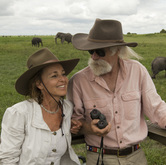
Dereck and Beverly Joubert
Great Plains Conservation, Rhino Rescue Project
Dereck and Beverly Joubert are award-winning filmmakers, National Geographic Explorers-in-Residence
and wildlife conservationists, who have been filming, researching and exploring in Africa for over 30
years. Their mission is the conservation and understanding of the large predators and other key wildlife
species that determine the course of all conservation in Africa. They are the founders of the Big Cats
Initiative with National Geographic, which currently funds 73 grants in 25 countries for the conservation of
big cats. The Jouberts have made over 25 films for National Geographic, published 11 books, half a dozen scientific papers, and have written many articles for the National Geographic Magazine. Beverly Joubert is also an acclaimed photographer and her international exhibitions have further helped to raise awareness for the plight of big cats across the world. Their films have received international recognition with major accolades. The Jouberts were also awarded the World Ecology Award alongside Prince Charles and Richard Leakey, and in 2009, they were inducted into the American Academy of Achievement. In recent years, the Jouberts have expanded their conservation outreach through another business venture, ‘Great Plains Conservation’. They bring together conservation, communities and conservation tourism to fund large tracts of land that can be protected for the local wildlife and the surrounding communities, totaling about 1.8 million acres in Africa. Currently the Jouberts are working on a rhino conservation project called ‘Rhinos Without Borders’ which aims to move 100 rhinos from South Africa to Botswana to save them from the poaching crisis, whilst creating a ‘Noah’s Ark’ for rhino genes. They also recently canoed 120km down the Selinda Spillway researching and filming elephants for conservation.
Great Plains Conservation, Rhino Rescue Project
Dereck and Beverly Joubert are award-winning filmmakers, National Geographic Explorers-in-Residence
and wildlife conservationists, who have been filming, researching and exploring in Africa for over 30
years. Their mission is the conservation and understanding of the large predators and other key wildlife
species that determine the course of all conservation in Africa. They are the founders of the Big Cats
Initiative with National Geographic, which currently funds 73 grants in 25 countries for the conservation of
big cats. The Jouberts have made over 25 films for National Geographic, published 11 books, half a dozen scientific papers, and have written many articles for the National Geographic Magazine. Beverly Joubert is also an acclaimed photographer and her international exhibitions have further helped to raise awareness for the plight of big cats across the world. Their films have received international recognition with major accolades. The Jouberts were also awarded the World Ecology Award alongside Prince Charles and Richard Leakey, and in 2009, they were inducted into the American Academy of Achievement. In recent years, the Jouberts have expanded their conservation outreach through another business venture, ‘Great Plains Conservation’. They bring together conservation, communities and conservation tourism to fund large tracts of land that can be protected for the local wildlife and the surrounding communities, totaling about 1.8 million acres in Africa. Currently the Jouberts are working on a rhino conservation project called ‘Rhinos Without Borders’ which aims to move 100 rhinos from South Africa to Botswana to save them from the poaching crisis, whilst creating a ‘Noah’s Ark’ for rhino genes. They also recently canoed 120km down the Selinda Spillway researching and filming elephants for conservation.
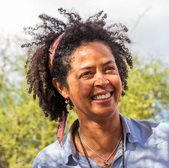
Paula Kahumba
Paula Kahumbu received her PhD in Ecology at Princeton University where she did her thesis on the ecology of elephants. She has been involved in conservation for over 20 years and held several policy, research and wildlife management positions at KWS including creating and running the CITES office. She headed the Kenyan delegation to CITES in 2000 and 2002. She is currently the CEO of WildlifeDirect. Paula is actively involved in education and is a lecturer at Princeton University, she is also the mentor of 15 year old innovator Richard Turere, the inventor of Lion Lights. Paula is a best-selling author of the children’s book Owen and Mzee and Looking for Miza.Paula is the winner of the National Geographic Howard Buffet Award for conservation leadership in Africa and is a National Geographic Emerging Explorer. She won the Whitley Award 2014 and received the Presidential honour of Order of the Grand Warrior in 2013.
Paula Kahumbu received her PhD in Ecology at Princeton University where she did her thesis on the ecology of elephants. She has been involved in conservation for over 20 years and held several policy, research and wildlife management positions at KWS including creating and running the CITES office. She headed the Kenyan delegation to CITES in 2000 and 2002. She is currently the CEO of WildlifeDirect. Paula is actively involved in education and is a lecturer at Princeton University, she is also the mentor of 15 year old innovator Richard Turere, the inventor of Lion Lights. Paula is a best-selling author of the children’s book Owen and Mzee and Looking for Miza.Paula is the winner of the National Geographic Howard Buffet Award for conservation leadership in Africa and is a National Geographic Emerging Explorer. She won the Whitley Award 2014 and received the Presidential honour of Order of the Grand Warrior in 2013.
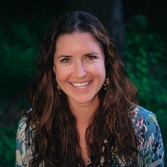
Lauren Kickham, Sr. Program Officer
Paul G. Allen’s Vulcan Inc.
Lauren Kickham is a Senior Program Officer at Vulcan Inc., the private, Seattle-based company that manages Paul G. Allen’s business and philanthropic interests. Lauren manages the Great Elephant Census, the first comprehensive Pan-African survey in more than 40 years intended to provide necessary data to protect African elephant populations, and other conservation initiatives. She also leads Vulcan’s Africa community development program, which seeks to empower remote communities to thrive in balance with local ecosystems. She manages a portfolio of investments, grants and projects in Eastern and Southern Africa that demonstrate viable models for achieving social, environmental and sustainability objectives.
Prior to Vulcan, Lauren was an Executive for InfraCo Africa and AgDevCo, both of which are private fund managers investing patient capital into clean energy infrastructure and smallholder agriculture in sub-Saharan Africa, respectively. She helped secure $200m+ of funding from Development Finance Institutions to finance these efforts, solidifying significant public private partnerships committed to development in Africa.
Paul G. Allen’s Vulcan Inc.
Lauren Kickham is a Senior Program Officer at Vulcan Inc., the private, Seattle-based company that manages Paul G. Allen’s business and philanthropic interests. Lauren manages the Great Elephant Census, the first comprehensive Pan-African survey in more than 40 years intended to provide necessary data to protect African elephant populations, and other conservation initiatives. She also leads Vulcan’s Africa community development program, which seeks to empower remote communities to thrive in balance with local ecosystems. She manages a portfolio of investments, grants and projects in Eastern and Southern Africa that demonstrate viable models for achieving social, environmental and sustainability objectives.
Prior to Vulcan, Lauren was an Executive for InfraCo Africa and AgDevCo, both of which are private fund managers investing patient capital into clean energy infrastructure and smallholder agriculture in sub-Saharan Africa, respectively. She helped secure $200m+ of funding from Development Finance Institutions to finance these efforts, solidifying significant public private partnerships committed to development in Africa.
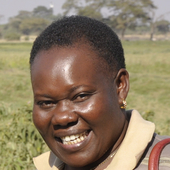
Dr. Winnie Kiiru, Founder
Conservation Kenya
Dr. Winnie Kiiru is an expert in elephant conservation and management. Dr. Kiiru has worked extensively on human-elephant conflict in Kenya and abroad. She is a member of the Coalition of Advisors for the Eco-exist project in Botswana which works to foster coexistence between communities and elephants in Botswana. Most recently, Kiiru was contracted by the UK Charity, Stop Ivory, to promote the Elephant Protection Initiative across Africa. Kiiru, working with a team from Stop Ivory has just completed the first National Inventory of Kenya’s Rhino horn and Ivory Stock pile. Kenya joined the Elephant Protection Initiative in July this year. Dr. Kiiru is passionate about introducing young Kenyans to conservation and she works as a part time university lecturer and student mentor in Kenya.
Conservation Kenya
Dr. Winnie Kiiru is an expert in elephant conservation and management. Dr. Kiiru has worked extensively on human-elephant conflict in Kenya and abroad. She is a member of the Coalition of Advisors for the Eco-exist project in Botswana which works to foster coexistence between communities and elephants in Botswana. Most recently, Kiiru was contracted by the UK Charity, Stop Ivory, to promote the Elephant Protection Initiative across Africa. Kiiru, working with a team from Stop Ivory has just completed the first National Inventory of Kenya’s Rhino horn and Ivory Stock pile. Kenya joined the Elephant Protection Initiative in July this year. Dr. Kiiru is passionate about introducing young Kenyans to conservation and she works as a part time university lecturer and student mentor in Kenya.
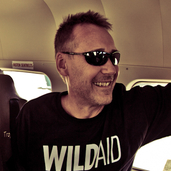
Peter Knights, Founder and Executive Director
WildAid
WildAid is the only nonprofit organization focused on reducing consumer demand for wildlife products such as elephant ivory, rhino horn and shark fin. The program uses sophisticated advertising techniques, donated airtime and celebrity spokespeople with the message, “When the buying stops, the killing can too.” The Duke of Cambridge (Prince William), Lupita Nyong’o, Yao Ming, David Beckham and Lang Lang are among WildAid’s current global ambassadors who speak out against the illegal wildlife trade. In 2014, media partners in China and Vietnam donated nearly $200 million in pro bono media for WildAid campaigns. Knights is a former program director working on illegal wildlife trade with Global Survival Network and a senior investigator for the Environmental Investigation Agency. In 1996 while working across Asia, he created the first international program aimed at reducing demand for endangered species products, and received an Associate Laureate of the Rolex Award for Enterprise for this work. Knights also initiated the Marine Protection Program and currently leads the Demand Reduction Program for shark fin, manta ray gill rakers, ivory, and rhino horn. WildAid’s campaign is widely attributed with helping to reduce demand for fins by 50-70% in China, while rising public opposition against the ivory trade in China precipitated a government announcement earlier this spring of a phase-out in the legal ivory trade.
WildAid
WildAid is the only nonprofit organization focused on reducing consumer demand for wildlife products such as elephant ivory, rhino horn and shark fin. The program uses sophisticated advertising techniques, donated airtime and celebrity spokespeople with the message, “When the buying stops, the killing can too.” The Duke of Cambridge (Prince William), Lupita Nyong’o, Yao Ming, David Beckham and Lang Lang are among WildAid’s current global ambassadors who speak out against the illegal wildlife trade. In 2014, media partners in China and Vietnam donated nearly $200 million in pro bono media for WildAid campaigns. Knights is a former program director working on illegal wildlife trade with Global Survival Network and a senior investigator for the Environmental Investigation Agency. In 1996 while working across Asia, he created the first international program aimed at reducing demand for endangered species products, and received an Associate Laureate of the Rolex Award for Enterprise for this work. Knights also initiated the Marine Protection Program and currently leads the Demand Reduction Program for shark fin, manta ray gill rakers, ivory, and rhino horn. WildAid’s campaign is widely attributed with helping to reduce demand for fins by 50-70% in China, while rising public opposition against the ivory trade in China precipitated a government announcement earlier this spring of a phase-out in the legal ivory trade.
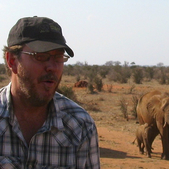
Mike Korchinsky, President and Founder
Wildlife Works
Mike is a serial entrepreneur who in 1997 founded Wildlife Works, with the goal of finding
innovative market based solutions to protecting wildlife and wilderness. Wildlife Works signature
project is protecting the 750,000 acre Kasigau Elephant Corridor between Tsavo East and West
NPs, Kenya. Wildlife Works second project is protecting 750,000 acres of forest elephant and
bonobo habitat in the DRC, which is at the heart of a Government program to preserve as much
as possible of the Congo Basin Rainforest.
Wildlife Works
Mike is a serial entrepreneur who in 1997 founded Wildlife Works, with the goal of finding
innovative market based solutions to protecting wildlife and wilderness. Wildlife Works signature
project is protecting the 750,000 acre Kasigau Elephant Corridor between Tsavo East and West
NPs, Kenya. Wildlife Works second project is protecting 750,000 acres of forest elephant and
bonobo habitat in the DRC, which is at the heart of a Government program to preserve as much
as possible of the Congo Basin Rainforest.
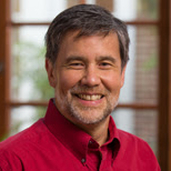
Dennis Liu, Head of Educational Media and Tangled Bank Studios
Howard Hughes Medical Institute
Dennis is a scientist by training who left benchwork to develop multimedia science education programs, first for Videodiscovery and then for Microsoft. For the past 18 years Dennis has channeled his passion for explaining how scientists think and work by developing multimedia programs with the Howard Hughes Medical Institute, primarily focused on serving the community of high school and college biology educators. The main vehicle for disseminating this work is the award winning BioInteractive website which serves a growing network of educators in all 50 states and 10 Provinces, as well as over 40 nations. The inception of HHMI’s Tangled Bank Studios in 2011 expanded the mission of the HHMI Department of Science education to include the power of documentary films. Currently Dennis heads both the film group and the education team, looking for opportunities to integrate and leverage the power of stories to reach educational audiences as well as the general public. In addition to producing long form and short films, the HHMI team produces virtual labs, high end 3D animations, short interactive documentaries, and artifact files for 3D printing.
Howard Hughes Medical Institute
Dennis is a scientist by training who left benchwork to develop multimedia science education programs, first for Videodiscovery and then for Microsoft. For the past 18 years Dennis has channeled his passion for explaining how scientists think and work by developing multimedia programs with the Howard Hughes Medical Institute, primarily focused on serving the community of high school and college biology educators. The main vehicle for disseminating this work is the award winning BioInteractive website which serves a growing network of educators in all 50 states and 10 Provinces, as well as over 40 nations. The inception of HHMI’s Tangled Bank Studios in 2011 expanded the mission of the HHMI Department of Science education to include the power of documentary films. Currently Dennis heads both the film group and the education team, looking for opportunities to integrate and leverage the power of stories to reach educational audiences as well as the general public. In addition to producing long form and short films, the HHMI team produces virtual labs, high end 3D animations, short interactive documentaries, and artifact files for 3D printing.
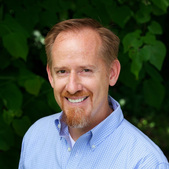
Colby Loucks, Senior Director, Wildlife Conservation
World Wildlife Fund (WWF)
Colby Loucks joined WWF in 1996 and leads WWF’s Wildlife Crime Technology Project which
focuses on harnessing the cutting-edge technologies to stop poaching. He also leads WWF’s
effort to evaluate the environmental, biological and social impacts of Forest Stewardship
Council (FSC) certification in tropical forests. Early in his WWF career, Colby led ecoregion conservation assessments for North America and the Indo-Pacific region, and led ecoregion planning analyses in the eastern Himalayas, Indochina, Mexico and China. He continued to combine his expertise in GIS, conservation biology and landscape ecology to identify remaining habitat for pandas in China's Shaanxi
Province. Colby has contributed to several international collaborations, helping to develop, create, and publish analyses including: WWF’s Global 200, earth’s most at-risk biodiversity (Alliance for Zero Extinction), and estimating and mapping humanity’s global consumption patterns. More recently, he led an analysis in Cambodia that created a 50 year timeline connecting the impacts of war and peace to species loss; prioritization of global tiger conservation areas; analyzing the impacts of sea level rise on tiger populations in Bangladesh's Sundarbans ecosystem; and identification of critical migration corridors for pronghorn antelope in the USA’s northern Great Plains.
World Wildlife Fund (WWF)
Colby Loucks joined WWF in 1996 and leads WWF’s Wildlife Crime Technology Project which
focuses on harnessing the cutting-edge technologies to stop poaching. He also leads WWF’s
effort to evaluate the environmental, biological and social impacts of Forest Stewardship
Council (FSC) certification in tropical forests. Early in his WWF career, Colby led ecoregion conservation assessments for North America and the Indo-Pacific region, and led ecoregion planning analyses in the eastern Himalayas, Indochina, Mexico and China. He continued to combine his expertise in GIS, conservation biology and landscape ecology to identify remaining habitat for pandas in China's Shaanxi
Province. Colby has contributed to several international collaborations, helping to develop, create, and publish analyses including: WWF’s Global 200, earth’s most at-risk biodiversity (Alliance for Zero Extinction), and estimating and mapping humanity’s global consumption patterns. More recently, he led an analysis in Cambodia that created a 50 year timeline connecting the impacts of war and peace to species loss; prioritization of global tiger conservation areas; analyzing the impacts of sea level rise on tiger populations in Bangladesh's Sundarbans ecosystem; and identification of critical migration corridors for pronghorn antelope in the USA’s northern Great Plains.
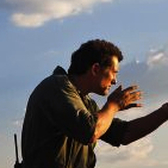
Damien Mander, Founder & CEO
International Anti-Poaching Foundation
Damien served as a Special Operations Sniper and Clearance Diver in the Australian Defence Force. Whilst deployed in Iraq he Project Managed the Iraq Special Police Training Academy, overseeing training of up to 700 cadets at one time. Following 3 years on the front lines of the Iraq war he departed in 2008 with no new direction in life. A trip to Africa left him face-to-face with the horrors that the worlds wildlife is facing. Liquidating his personal assets from his time in the military, he founded the International Anti-Poaching Foundation. The IAPF focuses on ranger training, operations and integrating modern technology such as drones into conservation. Damien is a soldier turned anti-poaching crusader. A vegan, he resides with his wife Maria and son Leo in Southern Africa bush. The IAPF’s work has featured in National Geographic Magazine, twice on 60 Minutes, Voice of America, Discovery Network, TEDx, Animal Planet, Good Weekend Magazine, The Project, Australia and Africa Geographic Magazines, Carte Blanch, Al Jazeera, ABC, Forbes, The SundayTimes, Christian Science Monitor and the UK Daily Telegraph.
International Anti-Poaching Foundation
Damien served as a Special Operations Sniper and Clearance Diver in the Australian Defence Force. Whilst deployed in Iraq he Project Managed the Iraq Special Police Training Academy, overseeing training of up to 700 cadets at one time. Following 3 years on the front lines of the Iraq war he departed in 2008 with no new direction in life. A trip to Africa left him face-to-face with the horrors that the worlds wildlife is facing. Liquidating his personal assets from his time in the military, he founded the International Anti-Poaching Foundation. The IAPF focuses on ranger training, operations and integrating modern technology such as drones into conservation. Damien is a soldier turned anti-poaching crusader. A vegan, he resides with his wife Maria and son Leo in Southern Africa bush. The IAPF’s work has featured in National Geographic Magazine, twice on 60 Minutes, Voice of America, Discovery Network, TEDx, Animal Planet, Good Weekend Magazine, The Project, Australia and Africa Geographic Magazines, Carte Blanch, Al Jazeera, ABC, Forbes, The SundayTimes, Christian Science Monitor and the UK Daily Telegraph.
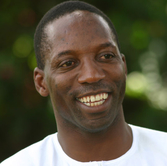
Jimmiel Mandima, Director of Program Design and Partner Relations in the U.S.
African Wildlife Foundation (AWF)
Jimmiel is from Masvingo Province in Zimbabwe, one of Africa’s great elephant range countries. He served in the field for many years as Director of AWF’s Zambezi Landscape, a transborder area that overlapped the borders of Zimbabwe and Zambia. Today he applies that field experience to represent AWF in policy discussions with the U.S. Government and other public-sector constituents. Jimmiel attended both the Denver and New York City Ivory Crushes.
African Wildlife Foundation (AWF)
Jimmiel is from Masvingo Province in Zimbabwe, one of Africa’s great elephant range countries. He served in the field for many years as Director of AWF’s Zambezi Landscape, a transborder area that overlapped the borders of Zimbabwe and Zambia. Today he applies that field experience to represent AWF in policy discussions with the U.S. Government and other public-sector constituents. Jimmiel attended both the Denver and New York City Ivory Crushes.

Jackson Miller, Lead Analyst, Wildlife & Environmental Crimes
C4ADS
Jackson leads the Environmental Crimes Fusion Cell at C4ADS, a Washington, DC-based nonprofit that specializes in providing data-driven analysis to map, track and expose illicit networks worldwide. A co-author of C4ADS’ 2014 report, Out of Africa, and a graduate of NYU, Jackson previously conducted independent research on Chinese diaspora networks across Asia and the United States.
C4ADS
Jackson leads the Environmental Crimes Fusion Cell at C4ADS, a Washington, DC-based nonprofit that specializes in providing data-driven analysis to map, track and expose illicit networks worldwide. A co-author of C4ADS’ 2014 report, Out of Africa, and a graduate of NYU, Jackson previously conducted independent research on Chinese diaspora networks across Asia and the United States.
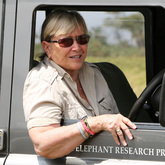
Cynthia Moss, Director
Amboseli Trust for Elephants
Born and educated in the U.S.A., Cynthia Moss moved to Africa in 1968 and has spent the past 47 years studying elephants and working for their conservation. She began her elephant work in Tanzania as an assistant to Iain Douglas-Hamilton. In 1972 she started the Amboseli Elephant Research Project (AERP) in Kenya. Moss has directed AERP for over four decades, making it the longest running elephant research project in the world. It is also one of the longest continuous studies of any mammal. Moss’s research has concentrated on demography, social organization and behavior of the Amboseli elephants; her collaborators use the Amboseli dataset to study genetics, communication, reproductive histories, and cognition. Moss’ role as Director of AERP encompasses directing and supervising ongoing research; disseminating scientific results; mentoring and training young biologists and conservationists: and promoting public awareness about elephants. In 2000 she founded the Amboseli Trust for Elephants (ATE) whose mission is to ensure the long-term conservation and welfare of Africa’s elephants in the context of human needs and pressures through scientific research, training, community outreach, public awareness and advocacy. Moss is the author of four books: Portraits in the Wild, Elephant Memories, Echo of the Elephants and Little Big Ears and co-author (with Laurence pringle) of Elephant Woman. In 2011, Moss and her colleagues published a scientific volume on the AERP research results. She has written numerous popular and scientific articles and has made six award-winning TV documentaries about elephants, the best-known being the films following the famous matriarch Echo and her family.
Amboseli Trust for Elephants
Born and educated in the U.S.A., Cynthia Moss moved to Africa in 1968 and has spent the past 47 years studying elephants and working for their conservation. She began her elephant work in Tanzania as an assistant to Iain Douglas-Hamilton. In 1972 she started the Amboseli Elephant Research Project (AERP) in Kenya. Moss has directed AERP for over four decades, making it the longest running elephant research project in the world. It is also one of the longest continuous studies of any mammal. Moss’s research has concentrated on demography, social organization and behavior of the Amboseli elephants; her collaborators use the Amboseli dataset to study genetics, communication, reproductive histories, and cognition. Moss’ role as Director of AERP encompasses directing and supervising ongoing research; disseminating scientific results; mentoring and training young biologists and conservationists: and promoting public awareness about elephants. In 2000 she founded the Amboseli Trust for Elephants (ATE) whose mission is to ensure the long-term conservation and welfare of Africa’s elephants in the context of human needs and pressures through scientific research, training, community outreach, public awareness and advocacy. Moss is the author of four books: Portraits in the Wild, Elephant Memories, Echo of the Elephants and Little Big Ears and co-author (with Laurence pringle) of Elephant Woman. In 2011, Moss and her colleagues published a scientific volume on the AERP research results. She has written numerous popular and scientific articles and has made six award-winning TV documentaries about elephants, the best-known being the films following the famous matriarch Echo and her family.
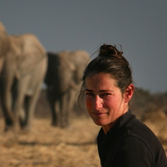
Caitlin O'Connell, CEO
Utopia Scientific
Caitlin O’Connell is a faculty member at Stanford University School of Medicine and CEO of the nonprofit organization, Utopia Scientific. She is the author of six books about elephants including the acclaimed Elephant Don and The Elephant’s Secret Sense, the former being the subject of the award-winning Smithsonian documentary Elephant King. She wrote her debut novel, Ivory Ghosts, to broaden the conversation about the plight of elephants in Africa.
Utopia Scientific
Caitlin O’Connell is a faculty member at Stanford University School of Medicine and CEO of the nonprofit organization, Utopia Scientific. She is the author of six books about elephants including the acclaimed Elephant Don and The Elephant’s Secret Sense, the former being the subject of the award-winning Smithsonian documentary Elephant King. She wrote her debut novel, Ivory Ghosts, to broaden the conversation about the plight of elephants in Africa.
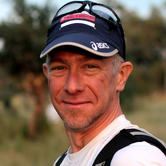
Jeffrey Parrish, Vice President for Conservation
Wildlife Conservation Network
Jefe (Jeffrey Parrish) is the Vice President for Conservation at the Wildlife Conservation Network, where he is responsible for supporting, growing and strengthening a network of the most innovative conservation heroes saving wildlife around the world. He has a particular focus on identifying the most urgent and innovative projects that can reverse the elephant crisis, and raising the funding and political will to ensure we will always live in a world with vibrant elephant populations. Prior to joining WCN, Jefe was a Managing Director at the World Wildlife Fund where he launched initiatives to engage the travel industry in conservation and developed new cutting edge concepts for game-changing funders such as Google and Leonardo DiCaprio. Prior to WWF, Jefe led the Freedom to Roam (FTR) coalition, where -with Patagonia Inc. - he developed groundbreaking partnerships and campaigns to promote the connectivity of increasingly fragmented lands and waters for wildlife in North America. Jefe held several leadership positions over his 12-year career at The Nature Conservancy and at Manomet Center for Conservation Science.
Wildlife Conservation Network
Jefe (Jeffrey Parrish) is the Vice President for Conservation at the Wildlife Conservation Network, where he is responsible for supporting, growing and strengthening a network of the most innovative conservation heroes saving wildlife around the world. He has a particular focus on identifying the most urgent and innovative projects that can reverse the elephant crisis, and raising the funding and political will to ensure we will always live in a world with vibrant elephant populations. Prior to joining WCN, Jefe was a Managing Director at the World Wildlife Fund where he launched initiatives to engage the travel industry in conservation and developed new cutting edge concepts for game-changing funders such as Google and Leonardo DiCaprio. Prior to WWF, Jefe led the Freedom to Roam (FTR) coalition, where -with Patagonia Inc. - he developed groundbreaking partnerships and campaigns to promote the connectivity of increasingly fragmented lands and waters for wildlife in North America. Jefe held several leadership positions over his 12-year career at The Nature Conservancy and at Manomet Center for Conservation Science.
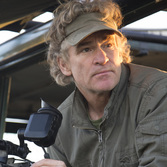
Bob Poole, Presenter, Cinematographer
Poole Films
Bob Poole is an On Camera Personality and Emmy Award winning Director of Photography. He has an extensive credit list with PBS NATURE and NOVA, BBC, over 30 shows for Discovery Networks, and an additional 35 plus films for National Geographic Television. Bob grew up in East Africa where his family spent much of their time with the abundant wildlife that thrived there during the 1960s and 1970s. Poole’s unique upbringing gave him an appreciation and curiosity of the natural world, a highly adventurous spirit, and a strong sense of self-reliance. His passion for wildlife led to his involvement as a Board Member for the Gorongosa National Park Restoration Project. He is a Fellow with the Explorers Club and a speaker with National Geographic’s Speakers Bureau. Poole is currently the Presenter and Wildlife Cameraman for Gorongosa Park: Rebirth of Paradise, a 6 part series for PBS and National Geographic International.
Poole Films
Bob Poole is an On Camera Personality and Emmy Award winning Director of Photography. He has an extensive credit list with PBS NATURE and NOVA, BBC, over 30 shows for Discovery Networks, and an additional 35 plus films for National Geographic Television. Bob grew up in East Africa where his family spent much of their time with the abundant wildlife that thrived there during the 1960s and 1970s. Poole’s unique upbringing gave him an appreciation and curiosity of the natural world, a highly adventurous spirit, and a strong sense of self-reliance. His passion for wildlife led to his involvement as a Board Member for the Gorongosa National Park Restoration Project. He is a Fellow with the Explorers Club and a speaker with National Geographic’s Speakers Bureau. Poole is currently the Presenter and Wildlife Cameraman for Gorongosa Park: Rebirth of Paradise, a 6 part series for PBS and National Geographic International.
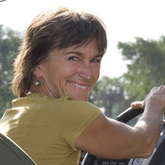
Joyce Poole, Scientific Director
ElephantVoices
Joyce Poole has studied elephants and worked for their conservation and welfare for 40 years and is a world authority on their reproductive, communicative and cognitive behaviour. She graduated from Smith College, holds a Cambridge University PhD and was a Princeton University post-doctoral fellow. Poole’s scientific discoveries of African elephants include musth, infrasonic and long-distance acoustic communication, vocal imitation, vocal and gestural repertoires and she has collaborated in ground-breaking elephant cognition studies. Poole is a leading voice for the protection and well being of elephants. Her documentation of the damage wrought on elephant societies by poaching was instrumental to the 1989 ban on international trade in ivory. She has been an expert witness in numerous elephant cruelty cases, is lead author of The Elephant Charter and an outspoken critic of the capture of elephants for captivity. Poole began her elephant research in Amboseli, Kenya in the mid-1970s. She headed the Kenya Wildlife Service Elephant Program 1990-1994, where her knowledge and enthusiasm inspired many Kenyans who hold key elephant management positions today. She has published numerous scientific and popular articles, written two books, Coming of Age with Elephants and Elephants, and participated in scores of media projects. She received a Smith College Medal for her research and training in Africa. In 2002 she and husband, Petter Granli, founded ElephantVoices and continue to co-direct it. They currently run elephant conservation projects in the Mara ecosystem, Kenya and in Gorongosa National Park, Mozambique, and work globally for the survival and welfare of elephants.
ElephantVoices
Joyce Poole has studied elephants and worked for their conservation and welfare for 40 years and is a world authority on their reproductive, communicative and cognitive behaviour. She graduated from Smith College, holds a Cambridge University PhD and was a Princeton University post-doctoral fellow. Poole’s scientific discoveries of African elephants include musth, infrasonic and long-distance acoustic communication, vocal imitation, vocal and gestural repertoires and she has collaborated in ground-breaking elephant cognition studies. Poole is a leading voice for the protection and well being of elephants. Her documentation of the damage wrought on elephant societies by poaching was instrumental to the 1989 ban on international trade in ivory. She has been an expert witness in numerous elephant cruelty cases, is lead author of The Elephant Charter and an outspoken critic of the capture of elephants for captivity. Poole began her elephant research in Amboseli, Kenya in the mid-1970s. She headed the Kenya Wildlife Service Elephant Program 1990-1994, where her knowledge and enthusiasm inspired many Kenyans who hold key elephant management positions today. She has published numerous scientific and popular articles, written two books, Coming of Age with Elephants and Elephants, and participated in scores of media projects. She received a Smith College Medal for her research and training in Africa. In 2002 she and husband, Petter Granli, founded ElephantVoices and continue to co-direct it. They currently run elephant conservation projects in the Mara ecosystem, Kenya and in Gorongosa National Park, Mozambique, and work globally for the survival and welfare of elephants.
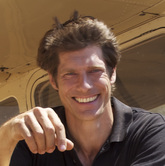
Frank Pope, Chief Operations Officer
Save the Elephants (STE)
After studying zoology at the University of Edinburgh he began his career in marine science before joining The Times newspaper as the world's only Ocean Correspondent to cover the fast-changing science, environment and geopolitics of the sea and help increase visibility of the crisis facing marine ecosystems. During this time he published two books, Dragon Sea (Penguin, 2007) and 72 Hours (Orion, 2011) and hosted the BBC Series Britain's Secret Seas. After joining Save the Elephants in 2012 Frank helped establish the Elephant Crisis Fund (a joint initiative between Save the Elephants & the Wildlife Conservation Network), supporting more than 37 different partner organisations across Africa and the world in conducting over 50 projects in the realms of anti-poaching, anti-trafficking and demand reduction. Frank is married to Saba Douglas-Hamilton, daughter of STE founder Iain, and they live in Kenya with their three small children where together they made the 2015 BBC Natural History Unit series This Wild Life.
Save the Elephants (STE)
After studying zoology at the University of Edinburgh he began his career in marine science before joining The Times newspaper as the world's only Ocean Correspondent to cover the fast-changing science, environment and geopolitics of the sea and help increase visibility of the crisis facing marine ecosystems. During this time he published two books, Dragon Sea (Penguin, 2007) and 72 Hours (Orion, 2011) and hosted the BBC Series Britain's Secret Seas. After joining Save the Elephants in 2012 Frank helped establish the Elephant Crisis Fund (a joint initiative between Save the Elephants & the Wildlife Conservation Network), supporting more than 37 different partner organisations across Africa and the world in conducting over 50 projects in the realms of anti-poaching, anti-trafficking and demand reduction. Frank is married to Saba Douglas-Hamilton, daughter of STE founder Iain, and they live in Kenya with their three small children where together they made the 2015 BBC Natural History Unit series This Wild Life.
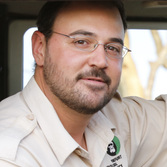
Dennis Rentsch, Project Manager, Serengeti Ecosystem Management
Frankfurt Zoological Society
Dennis is a conservation biologist working with Frankfurt Zoological Society in Tanzania’s Serengeti ecosystem. As Project Manager for the Serengeti Ecosystem Management office, Dennis works with local partners to strengthen conservation throughout the ecosystem through empowering communities to engage in the conservation of wildlife and other natural resources and adopt conservation-compatible livelihoods. Dennis Rentsch has worked in the Serengeti ecosystem since 2005 on a variety of research and conservation initiatives. He completed his PhD through the University of Minnesota examining socioeconomic drivers of bushmeat hunting by local communities around Serengeti National Park.
Frankfurt Zoological Society
Dennis is a conservation biologist working with Frankfurt Zoological Society in Tanzania’s Serengeti ecosystem. As Project Manager for the Serengeti Ecosystem Management office, Dennis works with local partners to strengthen conservation throughout the ecosystem through empowering communities to engage in the conservation of wildlife and other natural resources and adopt conservation-compatible livelihoods. Dennis Rentsch has worked in the Serengeti ecosystem since 2005 on a variety of research and conservation initiatives. He completed his PhD through the University of Minnesota examining socioeconomic drivers of bushmeat hunting by local communities around Serengeti National Park.
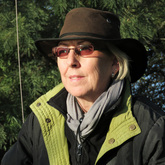
Mary Rice, Executive Director
Environmental Investigation Agency (EIA)
The EIA investigates and campaigns against a wide range of environmental crimes and abuses, including illegal wildlife trade (such as elephant ivory, tiger parts and derivatives), illegal logging and trade in climate- and ozone-altering chemicals. Trained as a journalist, Mary spent 15 years working in Asia before moving into the environmental sector. With close to two decades of experience in this field, Mary has extensive knowledge of the illegal international trade in wildlife, especially ivory, acting as a spokesperson on the subject and attending major international meetings on the issue. The findings of EIA’s global investigations into the illegal trade in ivory played a key role in establishing the international ivory ban in 1989. Subsequent investigations into the trade of ivory of species threatened by the increasing demand for their parts and products have been pivotal in providing decision makers with empirical evidence of the reality of the burgeoning illegal international trade in wildlife. Mary is a fellow of the Royal Society of Arts and a published author. Heat, Dust and Dreams (Struik), an exploration of people and environment in Namibia’s Kaokoland and Damaraland, was the result of three years of research and photography in what is now known as the Kunene region, home to the last viable population of black rhino outside of protected areas.
Environmental Investigation Agency (EIA)
The EIA investigates and campaigns against a wide range of environmental crimes and abuses, including illegal wildlife trade (such as elephant ivory, tiger parts and derivatives), illegal logging and trade in climate- and ozone-altering chemicals. Trained as a journalist, Mary spent 15 years working in Asia before moving into the environmental sector. With close to two decades of experience in this field, Mary has extensive knowledge of the illegal international trade in wildlife, especially ivory, acting as a spokesperson on the subject and attending major international meetings on the issue. The findings of EIA’s global investigations into the illegal trade in ivory played a key role in establishing the international ivory ban in 1989. Subsequent investigations into the trade of ivory of species threatened by the increasing demand for their parts and products have been pivotal in providing decision makers with empirical evidence of the reality of the burgeoning illegal international trade in wildlife. Mary is a fellow of the Royal Society of Arts and a published author. Heat, Dust and Dreams (Struik), an exploration of people and environment in Namibia’s Kaokoland and Damaraland, was the result of three years of research and photography in what is now known as the Kunene region, home to the last viable population of black rhino outside of protected areas.

Michael Rosenfeld, Chairman of the Board, Jackson Hole Wildlife Film Festival and CEO, Amber Road Media
Michael Rosenfeld is an award-winning filmmaker and writer with extensive leadership experience in documentary production and digital media. In a career spanning network broadcast, cable, and public television, he won or led teams that won hundreds of awards, including the Peabody and almost 40 News & Documentary Emmys. At National Geographic Television, Rosenfeld executive produced two legendary series--Explorer and the National Geographic Specials--and ran the company as President. In 2011 he joined HHMI to launch Tangled Bank Studios, where he executive produced such landmark projects as Your Inner Fish, which was described by the Wildscreen Jury as “the most engaging exploration of evolution since Life on Earth. Rosenfeld is currently CEO and Executive Producer of Amber Road Media, a new independent production company.
Michael Rosenfeld is an award-winning filmmaker and writer with extensive leadership experience in documentary production and digital media. In a career spanning network broadcast, cable, and public television, he won or led teams that won hundreds of awards, including the Peabody and almost 40 News & Documentary Emmys. At National Geographic Television, Rosenfeld executive produced two legendary series--Explorer and the National Geographic Specials--and ran the company as President. In 2011 he joined HHMI to launch Tangled Bank Studios, where he executive produced such landmark projects as Your Inner Fish, which was described by the Wildscreen Jury as “the most engaging exploration of evolution since Life on Earth. Rosenfeld is currently CEO and Executive Producer of Amber Road Media, a new independent production company.

Brooke Runnette, President
National Geographic Studios
Brooke Runnette, an Emmy- and Peabody Award-winning producer, joined National Geographic Channels as vice president, development and special projects in October 2012, and a month later transitioned into her current position heading National Geographic Television. She oversees innovative series, special events and live programming that bring the stories of National Geographic’s scientists, explorers and unique storytellers to the National Geographic Channels. Before joining National Geographic, Runnette worked at Discovery Channel, where she was executive producer and director of development for specials, including Shark Week. Under her direction, the 2010 Shark Week received the highest ratings in the annuals event's 23-year history. She also led efforts within Discovery to work more closely with scientists and conservation organizations such as Oceana and the Pew Charitable Trust’s Global Shark Conservation group. Other landmark specials Runnette oversaw while at Discovery included “The Kennedy Detail” (nominated for a News & Documentary Emmy Award), Discovery Channel’s 25th Anniversary Week, the Amelia Earhart expeditions and current affairs programming such as “Secrets of Seal Team 6.” Prior to joining Discovery Channel, she worked at TLC as executive director of programming, where she was executive producer of the hit series “Little People, Big World."Runnette has also been a producer for ABC News’ “Nightline,” PBS's “Frontline” and CBS’s “60 Minutes II.”
National Geographic Studios
Brooke Runnette, an Emmy- and Peabody Award-winning producer, joined National Geographic Channels as vice president, development and special projects in October 2012, and a month later transitioned into her current position heading National Geographic Television. She oversees innovative series, special events and live programming that bring the stories of National Geographic’s scientists, explorers and unique storytellers to the National Geographic Channels. Before joining National Geographic, Runnette worked at Discovery Channel, where she was executive producer and director of development for specials, including Shark Week. Under her direction, the 2010 Shark Week received the highest ratings in the annuals event's 23-year history. She also led efforts within Discovery to work more closely with scientists and conservation organizations such as Oceana and the Pew Charitable Trust’s Global Shark Conservation group. Other landmark specials Runnette oversaw while at Discovery included “The Kennedy Detail” (nominated for a News & Documentary Emmy Award), Discovery Channel’s 25th Anniversary Week, the Amelia Earhart expeditions and current affairs programming such as “Secrets of Seal Team 6.” Prior to joining Discovery Channel, she worked at TLC as executive director of programming, where she was executive producer of the hit series “Little People, Big World."Runnette has also been a producer for ABC News’ “Nightline,” PBS's “Frontline” and CBS’s “60 Minutes II.”
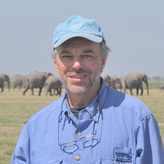
Carl Safina
Carl Safina Institute
Carl Safina's work explores how human dignity and the survival of the natural world are intertwined. He has studied nature as a scientist, stood for it as an advocate, and conveyed his travels among free-living creatures in lyrical non-fiction writing. While studying seabirds and fishes for his PhD in ecology, he witnessed rapid declines in sea turtles, sharks, tunas, and many others. Responding, Safina helped lead campaigns to ban driftnets, overhaul fisheries law, achieve a United Nations fisheries treaty, and reduce seabird and sea turtle drowning on commercial fishing lines. Along the way, his writings made him a leading voice on humanity’s relationship with nature. Safina is author of roughly 300 scientific and popular publications and 7 award wining books including Song for the Blue Ocean, Eye of the Albatross, The View from Lazy Point, and the children's book Nina Delmar and The Great Whale Rescue. In A Sea in Flames Safina chronicled the 2010 Gulf oil blowout. He hosted the 10-part Saving The Ocean on PBS television. Safina has received many conservation and literary awards. He is founding president of The Safina Center at Stony Brook University, where he also co-chairs the Alan Alda Center for Communicating Science. His new book--Beyond Words; What Animals Think and Feel—has a major section on elephants.
Carl Safina Institute
Carl Safina's work explores how human dignity and the survival of the natural world are intertwined. He has studied nature as a scientist, stood for it as an advocate, and conveyed his travels among free-living creatures in lyrical non-fiction writing. While studying seabirds and fishes for his PhD in ecology, he witnessed rapid declines in sea turtles, sharks, tunas, and many others. Responding, Safina helped lead campaigns to ban driftnets, overhaul fisheries law, achieve a United Nations fisheries treaty, and reduce seabird and sea turtle drowning on commercial fishing lines. Along the way, his writings made him a leading voice on humanity’s relationship with nature. Safina is author of roughly 300 scientific and popular publications and 7 award wining books including Song for the Blue Ocean, Eye of the Albatross, The View from Lazy Point, and the children's book Nina Delmar and The Great Whale Rescue. In A Sea in Flames Safina chronicled the 2010 Gulf oil blowout. He hosted the 10-part Saving The Ocean on PBS television. Safina has received many conservation and literary awards. He is founding president of The Safina Center at Stony Brook University, where he also co-chairs the Alan Alda Center for Communicating Science. His new book--Beyond Words; What Animals Think and Feel—has a major section on elephants.
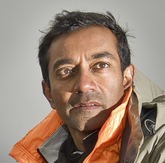
M. Sanjayan, PhD, Executive VP and Senior Scientist
Conservation International
Executive Vice President and Senior Scientist Conservation International Dr. M. Sanjayan (@msanjayan) is a global conservation scientist, writer and Emmy-nominated news contributor specializing in the role of conservation in improving human well-being. He serves on Conservation International’s senior leadership team as executive vice president and senior scientist. This summer, Sanjayan co-hosted "Big Blue Live," PBS’s three-part live television event showcasing marine life along America's west coast. His other recent television projects include the 2015 PBS television series, “EARTH - A New Wild” and Showtime’s “Years of Living Dangerously,” the 2014 Emmy-winning series on the impact of climate change. Sanjayan also led the launch of Nature Is Speaking, Conservation International’s critically acclaimed campaign that delivers a powerful message: people need nature to survive. His peer-reviewed scientific work has been published in journals including Science, Nature and Conservation Biology, and his expertise has attracted national media coverage in Outside, Time, National Geographic, AFAR, Grist and The New York Times. He was named to Men’s Journal’s 2015 list of the “50 Most Adventurous Men.” Sanjayan is a Clinton Global Initiative Senior Advisor, a Catto Fellow at the Aspen Institute, and an Ambassador for DisneyNature films. He is also a member of National Geographic Society’s Explorers Council, a distinguished group of top scientists, researchers and explorers who provide advice and counsel to the Society across disciplines and projects. He writes for Orion magazine, The Huffington Post and Fortune China, and posts frequently from his expeditions @msanjayan.
Conservation International
Executive Vice President and Senior Scientist Conservation International Dr. M. Sanjayan (@msanjayan) is a global conservation scientist, writer and Emmy-nominated news contributor specializing in the role of conservation in improving human well-being. He serves on Conservation International’s senior leadership team as executive vice president and senior scientist. This summer, Sanjayan co-hosted "Big Blue Live," PBS’s three-part live television event showcasing marine life along America's west coast. His other recent television projects include the 2015 PBS television series, “EARTH - A New Wild” and Showtime’s “Years of Living Dangerously,” the 2014 Emmy-winning series on the impact of climate change. Sanjayan also led the launch of Nature Is Speaking, Conservation International’s critically acclaimed campaign that delivers a powerful message: people need nature to survive. His peer-reviewed scientific work has been published in journals including Science, Nature and Conservation Biology, and his expertise has attracted national media coverage in Outside, Time, National Geographic, AFAR, Grist and The New York Times. He was named to Men’s Journal’s 2015 list of the “50 Most Adventurous Men.” Sanjayan is a Clinton Global Initiative Senior Advisor, a Catto Fellow at the Aspen Institute, and an Ambassador for DisneyNature films. He is also a member of National Geographic Society’s Explorers Council, a distinguished group of top scientists, researchers and explorers who provide advice and counsel to the Society across disciplines and projects. He writes for Orion magazine, The Huffington Post and Fortune China, and posts frequently from his expeditions @msanjayan.
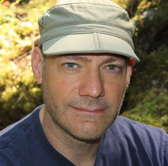
Ted Schmitt, Senior Program Manager, Conservation Technology
Vulcan
Ted Schmitt leads technology aspects of philanthropic initiatives for Vulcan. Ted’s projects range from addressing illegal fishing to improving wildlife protected area management. Prior to joining Vulcan, Ted was Senior Program Officer for the Computer Science and Telecommunications Board at the National Academies of Science directing studies on topics such as disaster communications, healthcare IT, and broadband policy. He served as Technical Director at several technology start-ups in Germany, Sweden, and the United States, leading projects applying technology for impact on a range of issues. He started his career as a software engineer for IBM, earning patents and several technical achievement awards. Ted holds an M.A. in International Science and Technology Policy from George Washington University, a B.S. in Electrical Engineering, and a B.A. in German from Purdue University. He also studied at Universität Hamburg, Germany.
Vulcan
Ted Schmitt leads technology aspects of philanthropic initiatives for Vulcan. Ted’s projects range from addressing illegal fishing to improving wildlife protected area management. Prior to joining Vulcan, Ted was Senior Program Officer for the Computer Science and Telecommunications Board at the National Academies of Science directing studies on topics such as disaster communications, healthcare IT, and broadband policy. He served as Technical Director at several technology start-ups in Germany, Sweden, and the United States, leading projects applying technology for impact on a range of issues. He started his career as a software engineer for IBM, earning patents and several technical achievement awards. Ted holds an M.A. in International Science and Technology Policy from George Washington University, a B.S. in Electrical Engineering, and a B.A. in German from Purdue University. He also studied at Universität Hamburg, Germany.
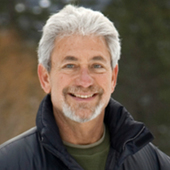
Louie Schwartzberg
Moving Art
Louie Schwartzberg is an award-winning producer, director, and cinematographer whose notable career spans more than three decades, providing breathtaking imagery for feature films, television shows, documentaries and commercials. As the only cinematographer in the world who has been shooting time-lapse 24/7 continuously for well over three decades, Schwartzberg is a visual artist breaking barriers, connecting with audiences, and telling stories that celebrate life and reveal the mysteries and wisdom of nature, people and places. His work was recently featured on Oprah’s Super Soul Sunday. His recent theatrical releases include the 3D IMAX film Mysteries of the Unseen World with National Geographic, narrated by Forest Whitaker, and Wings of Life, a feature documentary for Disneynature, narrated by Meryl Streep. Over his long trailblazing career, Schwartzberg has earned myriad awards and honors including two Clio Awards for Best Environmental PSAs, an Emmy nomination for Best Cinematography (Oceans of Air on the Discovery Channel), a Truly Moving Picture Award from the Heartland Film Festival (America’s Heart & Soul) and Best Film–Inspiration at the Ocean Film Festival (Gratitude). He was recognized as one of the “Top 70 Cinematographers” for the On Film Kodak Salute Series. Schwartzberg was also recently honored and humbled to receive the NAAPC Pollinator Protector award.
Moving Art
Louie Schwartzberg is an award-winning producer, director, and cinematographer whose notable career spans more than three decades, providing breathtaking imagery for feature films, television shows, documentaries and commercials. As the only cinematographer in the world who has been shooting time-lapse 24/7 continuously for well over three decades, Schwartzberg is a visual artist breaking barriers, connecting with audiences, and telling stories that celebrate life and reveal the mysteries and wisdom of nature, people and places. His work was recently featured on Oprah’s Super Soul Sunday. His recent theatrical releases include the 3D IMAX film Mysteries of the Unseen World with National Geographic, narrated by Forest Whitaker, and Wings of Life, a feature documentary for Disneynature, narrated by Meryl Streep. Over his long trailblazing career, Schwartzberg has earned myriad awards and honors including two Clio Awards for Best Environmental PSAs, an Emmy nomination for Best Cinematography (Oceans of Air on the Discovery Channel), a Truly Moving Picture Award from the Heartland Film Festival (America’s Heart & Soul) and Best Film–Inspiration at the Ocean Film Festival (Gratitude). He was recognized as one of the “Top 70 Cinematographers” for the On Film Kodak Salute Series. Schwartzberg was also recently honored and humbled to receive the NAAPC Pollinator Protector award.
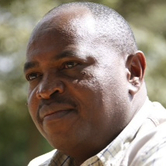
Noah Sitati, Program Manager of the Kilimanjaro Landscape
African Wildlife Foundation (AWF)
Noah grew up in Bungoma County in Kenya and has a PhD in Biodiversity Management from the University of Kent in England. He is presently the program manager of AWF’s Kilimanjaro Landscape, a transborder area overlapping southern Kenya and northern Tanzania and home to an important population of savannah elephants. Noah’s past areas of research included elephants, human-wildlife conflict, climate change impacts on livelihoods, forest use by local communities, and the dynamics and distribution of wildlife populations. As AWF’s Kilimanjaro landscape program manager, Noah is primarily focused on mitigating human-wildlife conflict, identifying and protecting wildlife corridors, bringing benefits to local communities, ensuring connectivity of wild habitat, and conservation of forests and wetlands in the region.
African Wildlife Foundation (AWF)
Noah grew up in Bungoma County in Kenya and has a PhD in Biodiversity Management from the University of Kent in England. He is presently the program manager of AWF’s Kilimanjaro Landscape, a transborder area overlapping southern Kenya and northern Tanzania and home to an important population of savannah elephants. Noah’s past areas of research included elephants, human-wildlife conflict, climate change impacts on livelihoods, forest use by local communities, and the dynamics and distribution of wildlife populations. As AWF’s Kilimanjaro landscape program manager, Noah is primarily focused on mitigating human-wildlife conflict, identifying and protecting wildlife corridors, bringing benefits to local communities, ensuring connectivity of wild habitat, and conservation of forests and wetlands in the region.
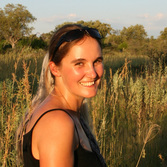
Dr. Anna Songhurst, Co-Founder and Director
Ecoexist
Dr. Anna Songhurst is a conservation biologist, specializing in elephants and human-elephant interactions. She has been working and conducting research in Botswana for the past 12 years. Anna is currently a co-director of the Ecoexist Project, a five year program that aims to reduce human-elephant conflicts (HEC) and foster coexistence between humans and elephants in the Okavango Panhandle, Botswana through a number of focused, integrated management tools and strategies that provide immediate and long-term solutions. She is also a Senior Research Associate in the Department of Zoology at the University of Oxford and supervising three PhD students at Texas A & M University.
Ecoexist
Dr. Anna Songhurst is a conservation biologist, specializing in elephants and human-elephant interactions. She has been working and conducting research in Botswana for the past 12 years. Anna is currently a co-director of the Ecoexist Project, a five year program that aims to reduce human-elephant conflicts (HEC) and foster coexistence between humans and elephants in the Okavango Panhandle, Botswana through a number of focused, integrated management tools and strategies that provide immediate and long-term solutions. She is also a Senior Research Associate in the Department of Zoology at the University of Oxford and supervising three PhD students at Texas A & M University.
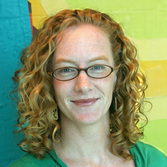
Hilary Sparrow, Senior Supervising Producer
Vulcan Productions
Hilary Sparrow serves as Senior Supervising Producer at Vulcan Productions. Founded by philanthropist, entrepreneur and Microsoft co-founder Paul Allen, Vulcan Productions develops and produces compelling feature films, television series, specials and digital content designed to inspire people to take action on the critical issues of our time. Sparrow helms key initiatives at Vulcan Productions, managing the production, marketing, strategy, outreach and impact of film and television projects. High profile projects that Hilary has spearheaded for the company include the feature documentaries Girl Rising, Pandora’s Promise andRacing Extinction, and series including the three-part PBS program This Emotional Life andSuccess at the Core, the web-based toolkit for middle school educators. She is currently in production on two documentaries focused on African Elephants. Sparrow’s projects have won numerous awards and nominations including two News and Documentary Emmy’s, Telly’s, Webby’s, among others. Sparrow is a graduate of the University of North Carolina at Chapel Hill, with a BA in Journalism and Spanish.
Vulcan Productions
Hilary Sparrow serves as Senior Supervising Producer at Vulcan Productions. Founded by philanthropist, entrepreneur and Microsoft co-founder Paul Allen, Vulcan Productions develops and produces compelling feature films, television series, specials and digital content designed to inspire people to take action on the critical issues of our time. Sparrow helms key initiatives at Vulcan Productions, managing the production, marketing, strategy, outreach and impact of film and television projects. High profile projects that Hilary has spearheaded for the company include the feature documentaries Girl Rising, Pandora’s Promise andRacing Extinction, and series including the three-part PBS program This Emotional Life andSuccess at the Core, the web-based toolkit for middle school educators. She is currently in production on two documentaries focused on African Elephants. Sparrow’s projects have won numerous awards and nominations including two News and Documentary Emmy’s, Telly’s, Webby’s, among others. Sparrow is a graduate of the University of North Carolina at Chapel Hill, with a BA in Journalism and Spanish.
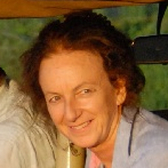
Vicky Stone, Director, Producer
DeebleStone Productions
DeebleStone Productions
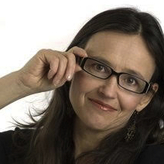
Ginger Thomson, Executive Director
Lewa Wildlife Conservancy
Ginger Thomson has spent the last four years working with the Lewa Wildlife Conservancy in Kenya to build their presence in the USA. She understood the unique opportunity Lewa offered to bring development to conservation strategies and conservation to development strategies in rural Kenya – and jumped on board to help catalyze the impact of this small and highly effective organization in northern Kenya. An animal lover with a call to the plight of the African elephant and the many endangered species of eastern Africa, Thomson recognized Lewa’s deep understanding of the critical connection between man and nature. Over time Thomson has focused her work on social impact management and investing in both the public and private sectors and has developed a passion for building great organizations, products and services that impact key issues. A collaborative and strategic leader in start-ups to large global businesses, Thomson entered the Conservation field hoping to find and help build a world-class institution that could reverse conservation trends and recognize the importance of holistic approaches to wildlife conservation and socio-economic development. Lewa is such an organization. Thomson’s previous areas of expertise include: digital payment systems, consumer mobile and internet, product management, user experience, web design, strategy, leadership development, team-building, international expansion, program management, marketing, brand development and management, ecommerce, financial services, software development, operations, financial inclusion, inclusive innovation, property rights, entrepreneurism and emerging market development.
Lewa Wildlife Conservancy
Ginger Thomson has spent the last four years working with the Lewa Wildlife Conservancy in Kenya to build their presence in the USA. She understood the unique opportunity Lewa offered to bring development to conservation strategies and conservation to development strategies in rural Kenya – and jumped on board to help catalyze the impact of this small and highly effective organization in northern Kenya. An animal lover with a call to the plight of the African elephant and the many endangered species of eastern Africa, Thomson recognized Lewa’s deep understanding of the critical connection between man and nature. Over time Thomson has focused her work on social impact management and investing in both the public and private sectors and has developed a passion for building great organizations, products and services that impact key issues. A collaborative and strategic leader in start-ups to large global businesses, Thomson entered the Conservation field hoping to find and help build a world-class institution that could reverse conservation trends and recognize the importance of holistic approaches to wildlife conservation and socio-economic development. Lewa is such an organization. Thomson’s previous areas of expertise include: digital payment systems, consumer mobile and internet, product management, user experience, web design, strategy, leadership development, team-building, international expansion, program management, marketing, brand development and management, ecommerce, financial services, software development, operations, financial inclusion, inclusive innovation, property rights, entrepreneurism and emerging market development.
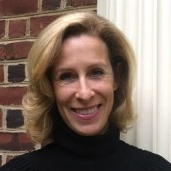
Carole Tomko, General Manager & Creative Director of Vulcan Productions &
Vice President of Philanthropy
Vulcan Productions
An industry leader with experience in launching and rebranding networks and producing award-winning content, Carole Tomko joined Paul G. Allen’s Vulcan Productions as General Manager and Creative Director in 2013. Vulcan Productions produces projects designed to entertain, inform and cultivate social change with powerful content and targeted impact campaigns around the critical issues of our time Tomko served as President and General Manager of several networks at Discovery Communications. She launched and rebranded Discovery Health, FitTV, and Discovery Kids. As President and General Manager of Discovery Studios, she led television development and production, feature documentaries, talent development, casting, branded entertainment, and footage and music services. Prior to her work at Discovery, Tomko directed development and programming for Time-Life Video & Television, and produced content for an array of media and entertainment companies including Orion Pictures, Editel and Westinghouse. In 2012, she launched Carole Tomko Media, a strategic advisory company to guide businesses in all aspects of content and media creation. Tomko has been recognized multiple times by CableFAX magazine as one of the Most Influential Women in Cable. She serves on the board for Jackson Hole Wildlife Film Festival; and she was also a board member for The Hub television network, the children’s network joint venture between Discovery Communications and Hasbro.
Vice President of Philanthropy
Vulcan Productions
An industry leader with experience in launching and rebranding networks and producing award-winning content, Carole Tomko joined Paul G. Allen’s Vulcan Productions as General Manager and Creative Director in 2013. Vulcan Productions produces projects designed to entertain, inform and cultivate social change with powerful content and targeted impact campaigns around the critical issues of our time Tomko served as President and General Manager of several networks at Discovery Communications. She launched and rebranded Discovery Health, FitTV, and Discovery Kids. As President and General Manager of Discovery Studios, she led television development and production, feature documentaries, talent development, casting, branded entertainment, and footage and music services. Prior to her work at Discovery, Tomko directed development and programming for Time-Life Video & Television, and produced content for an array of media and entertainment companies including Orion Pictures, Editel and Westinghouse. In 2012, she launched Carole Tomko Media, a strategic advisory company to guide businesses in all aspects of content and media creation. Tomko has been recognized multiple times by CableFAX magazine as one of the Most Influential Women in Cable. She serves on the board for Jackson Hole Wildlife Film Festival; and she was also a board member for The Hub television network, the children’s network joint venture between Discovery Communications and Hasbro.
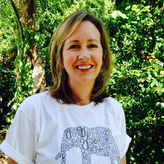
Jan Vertefeuille, Senior Director, Wildlife Conservation & Advocacy
World Wildlife Fund (WWF)
Since joining WWF in 2002, Jan has looked for ways to engage the public, change government and corporate policies, and connect WWF's work directly to the people who live on the front lines of conservation. She led some of WWF's most successful advocacy campaigns to date, including one that resulted in leaders from all 13 countries with wild tigers committing to collectively doubling the current tiger population. Jan was also an architect of WWF’s recent campaign to elevate the global response to wildlife trafficking and to work with powerful champions to effect change, from Leonardo DiCaprio to revered faith leaders. She currently is working on new approaches to reduce consumer demand for products that drive wildlife crime, such as ivory and rhino horn. Jan is also working closely with partners across the globe to save one of the last large swaths of rain forest in Sumatra, Thirty Hills, a project that is breaking new ground by involving shared management of the forest with indigenous communities.
World Wildlife Fund (WWF)
Since joining WWF in 2002, Jan has looked for ways to engage the public, change government and corporate policies, and connect WWF's work directly to the people who live on the front lines of conservation. She led some of WWF's most successful advocacy campaigns to date, including one that resulted in leaders from all 13 countries with wild tigers committing to collectively doubling the current tiger population. Jan was also an architect of WWF’s recent campaign to elevate the global response to wildlife trafficking and to work with powerful champions to effect change, from Leonardo DiCaprio to revered faith leaders. She currently is working on new approaches to reduce consumer demand for products that drive wildlife crime, such as ivory and rhino horn. Jan is also working closely with partners across the globe to save one of the last large swaths of rain forest in Sumatra, Thirty Hills, a project that is breaking new ground by involving shared management of the forest with indigenous communities.
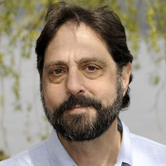
Dr. Samuel Wasser, Director for Conservation Biology
University of Washington
Dr. Samuel Wasser is acknowledged worldwide as a pioneer of non-invasive wildlife monitoring methods, including the genetic, endocrine, toxicology and detection dog techniques used by the Center. After obtaining his Ph.D. from the University of Washington in 1981, Dr. Wasser received consecutive Career Development Awards from the Guggenheim Foundation and the Smithsonian Institution. In 2001, Dr. Wasser was awarded the Endowed Chair in Conservation Biology by the University of Washington Board of Regents. Dr. Wasser has participated in a number of conservation programs throughout Africa, South and North America, and SE Asia, in collaboration with state, federal, and international organizations. His groundbreaking work in noninvasive environmental monitoring and wildlife forensics is internationally respected among scientists, environmental activists, and government and non-government wildlife managers alike. This places Dr. Wasser in a unique position to negotiate the kinds of conservation solutions needed in our rapidly changing world.
University of Washington
Dr. Samuel Wasser is acknowledged worldwide as a pioneer of non-invasive wildlife monitoring methods, including the genetic, endocrine, toxicology and detection dog techniques used by the Center. After obtaining his Ph.D. from the University of Washington in 1981, Dr. Wasser received consecutive Career Development Awards from the Guggenheim Foundation and the Smithsonian Institution. In 2001, Dr. Wasser was awarded the Endowed Chair in Conservation Biology by the University of Washington Board of Regents. Dr. Wasser has participated in a number of conservation programs throughout Africa, South and North America, and SE Asia, in collaboration with state, federal, and international organizations. His groundbreaking work in noninvasive environmental monitoring and wildlife forensics is internationally respected among scientists, environmental activists, and government and non-government wildlife managers alike. This places Dr. Wasser in a unique position to negotiate the kinds of conservation solutions needed in our rapidly changing world.
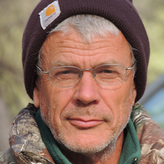
William C. Woody, Chief of Law Enforcement
U.S. Fish and Wildlife Service
William C. Woody serves as the Chief of Law Enforcement for the U.S. Fish and
Wildlife Service. In this position, Woody directs the work of the Service’s agents, inspectors, officers, and personnel in the Forensic Laboratory, Digital Evidence Recovery and Technical Support Unit (DERTSU) and National Wildlife and Eagle Repositories enforcing the Nation’s wildlife laws both domestically and internationally. His priorities include strengthening enforcement partnerships with Federal, State and international partners and bringing these government law enforcement entities together in targeting
international and domestic networks trafficking in illegally taken wildlife. Woody’s background in wildlife law enforcement includes 19 years with the Utah Division of Wildlife Resources. Hired in 1983, he worked as a conservation officer, investigator, and captain, before being appointed as the Director of Utah Department of Natural Resources Law Enforcement in 2001. In 2003, Woody was appointed as the Director of Law Enforcement for the Bureau of Land Management (BLM). In this position, he oversaw the work of BLM rangers and special agents in protecting the natural and cultural resources on more than 245 million acres of BLM-managed public lands located in the western United States. Woody earned his undergraduate degrees at Utah State University and Weber State University in Utah and is a graduate of the FBI National Academy. He was appointed by the Governor of the State of Utah to serve on the Police Officers Standards and Training Council.
U.S. Fish and Wildlife Service
William C. Woody serves as the Chief of Law Enforcement for the U.S. Fish and
Wildlife Service. In this position, Woody directs the work of the Service’s agents, inspectors, officers, and personnel in the Forensic Laboratory, Digital Evidence Recovery and Technical Support Unit (DERTSU) and National Wildlife and Eagle Repositories enforcing the Nation’s wildlife laws both domestically and internationally. His priorities include strengthening enforcement partnerships with Federal, State and international partners and bringing these government law enforcement entities together in targeting
international and domestic networks trafficking in illegally taken wildlife. Woody’s background in wildlife law enforcement includes 19 years with the Utah Division of Wildlife Resources. Hired in 1983, he worked as a conservation officer, investigator, and captain, before being appointed as the Director of Utah Department of Natural Resources Law Enforcement in 2001. In 2003, Woody was appointed as the Director of Law Enforcement for the Bureau of Land Management (BLM). In this position, he oversaw the work of BLM rangers and special agents in protecting the natural and cultural resources on more than 245 million acres of BLM-managed public lands located in the western United States. Woody earned his undergraduate degrees at Utah State University and Weber State University in Utah and is a graduate of the FBI National Academy. He was appointed by the Governor of the State of Utah to serve on the Police Officers Standards and Training Council.
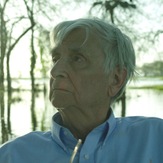
E.O. Wilson
Edward Wilson is one of the leading American scientists of our time. A biologist, his life-long
passion for insects led him early in his career to become the world’s foremost expert on ants, but this was just the beginning. He went on to make ground-breaking contributions to evolutionary theory and the study of population dynamics. His 1967 book written with mathematician Robert MacArthur, The Theory of Island Biogeography, is widely considered to be the cornerstone of conservation biology. But perhaps his greatest contribution has been to the study of social behavior in the animal world. Wilson’s 1975 book, Sociobiology, created one of the great academic controversies of the late 20th century but revolutionized thinking about the bases of animal societies, including our own. It opened up new avenues for thinking about human behavior and psychology which are still being explored today. Later in his career, he embarked on a grand re-thinking of evolutionary theory as it applied to social animals. His open espousal of the theory of “group selection” has brought him into conflict with many scientists, notably Richard Dawkins, but reinvigorated the field. Throughout his career he has been a tireless champion of conservation. A fine writer, Wilson’s books on philosophy, religion and the natural world have made him one of the most widely read scientists of our era and earned him two Pulitzer prizes.
Edward Wilson is one of the leading American scientists of our time. A biologist, his life-long
passion for insects led him early in his career to become the world’s foremost expert on ants, but this was just the beginning. He went on to make ground-breaking contributions to evolutionary theory and the study of population dynamics. His 1967 book written with mathematician Robert MacArthur, The Theory of Island Biogeography, is widely considered to be the cornerstone of conservation biology. But perhaps his greatest contribution has been to the study of social behavior in the animal world. Wilson’s 1975 book, Sociobiology, created one of the great academic controversies of the late 20th century but revolutionized thinking about the bases of animal societies, including our own. It opened up new avenues for thinking about human behavior and psychology which are still being explored today. Later in his career, he embarked on a grand re-thinking of evolutionary theory as it applied to social animals. His open espousal of the theory of “group selection” has brought him into conflict with many scientists, notably Richard Dawkins, but reinvigorated the field. Throughout his career he has been a tireless champion of conservation. A fine writer, Wilson’s books on philosophy, religion and the natural world have made him one of the most widely read scientists of our era and earned him two Pulitzer prizes.
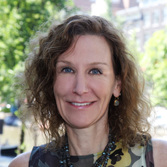
Ellen Windemuth, Founder & CEO
Off the Fence Productions
Ellen Windemuth founded Off the Fence in 1994 after working for Fremantle and Atlantis. Under her leadership the company acquired, produced and co-produced over 6,000 hours of content. Ellen is a seasoned Executive Producer and Distributor, and has produced over 400 hours to date herself. She is the Treasurer of the Jackson Hole Wildlife Film Festival and a Board Member of the Wild Talk Festival as well as an Advisory Board Member for Realscreen London. She is active in conservation and land development, has three children and a great passion for the outdoors.
Off the Fence Productions
Ellen Windemuth founded Off the Fence in 1994 after working for Fremantle and Atlantis. Under her leadership the company acquired, produced and co-produced over 6,000 hours of content. Ellen is a seasoned Executive Producer and Distributor, and has produced over 400 hours to date herself. She is the Treasurer of the Jackson Hole Wildlife Film Festival and a Board Member of the Wild Talk Festival as well as an Advisory Board Member for Realscreen London. She is active in conservation and land development, has three children and a great passion for the outdoors.
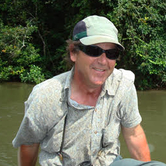
Peter Wrege, Director
Elephant Listening Project
Peter has made Cornell University and Ithaca, New York his base for nearly 40 years, although nearly half of that time has been spent conducting field work somewhere else in the world. Multi-year projects and extended field seasons observing animals in their natural environments have been his passion. He has worked in such places as Venezuela, Panamá, the Galapagos, Kenya, Gabon, Cameroon, Congo, and the Central African Republic. In 2007 Peter cautiously took over from Katy Payne as director of the Elephant Listening Project and began listening to the forests of Central Africa. Using innovative technologies to gather sounds, Peter and the team of experts in the Bioacoustics Research Program at the Cornell Lab of Ornithology, has been developing and demonstrating new methods to gather and analyze data on forest elephants and the human incursions that affect their lives.
Elephant Listening Project
Peter has made Cornell University and Ithaca, New York his base for nearly 40 years, although nearly half of that time has been spent conducting field work somewhere else in the world. Multi-year projects and extended field seasons observing animals in their natural environments have been his passion. He has worked in such places as Venezuela, Panamá, the Galapagos, Kenya, Gabon, Cameroon, Congo, and the Central African Republic. In 2007 Peter cautiously took over from Katy Payne as director of the Elephant Listening Project and began listening to the forests of Central Africa. Using innovative technologies to gather sounds, Peter and the team of experts in the Bioacoustics Research Program at the Cornell Lab of Ornithology, has been developing and demonstrating new methods to gather and analyze data on forest elephants and the human incursions that affect their lives.
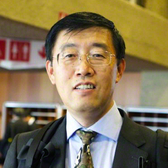
Liu Yuan, Communications and Outreach Officer
United Nations, CITES (Convention on Illegal Trade of Endangered Species)
Liu Yuan is the Communications and Outreach Officer of the Secretariat of the Convention on International Trade in Endangered Species of Wild Fauna and Flora (CITES), the international treaty with 181 State Parties that regulates the world's wildlife trade since 1975. Yuan has been working on CITES since 1989 at both national and international levels.
United Nations, CITES (Convention on Illegal Trade of Endangered Species)
Liu Yuan is the Communications and Outreach Officer of the Secretariat of the Convention on International Trade in Endangered Species of Wild Fauna and Flora (CITES), the international treaty with 181 State Parties that regulates the world's wildlife trade since 1975. Yuan has been working on CITES since 1989 at both national and international levels.
**Please direct any corrections to melanie@jhfestival.org**
Photos courtesy of Nat Geo WILD

